Swimming pools are the ultimate insertion in a backyard design. Even if they sound a bit luxurious and probably unaffordable, the amount of relaxation and recreation achieved by having such an extension to your home will always outweigh the costs.
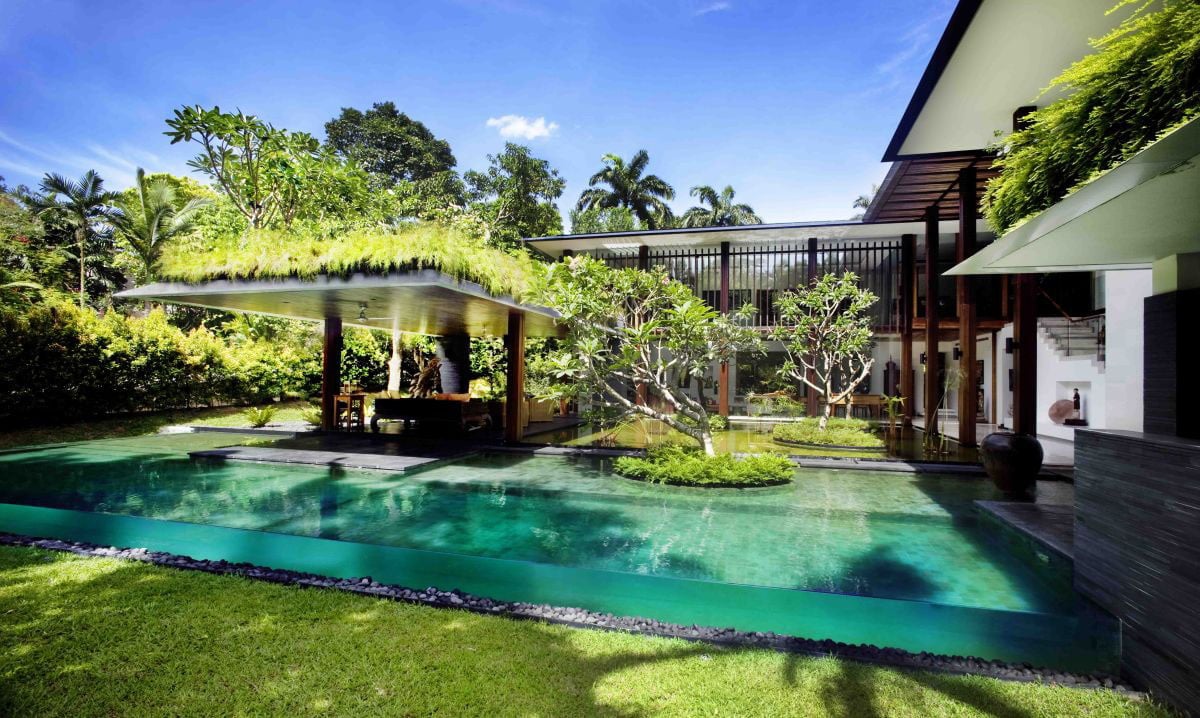
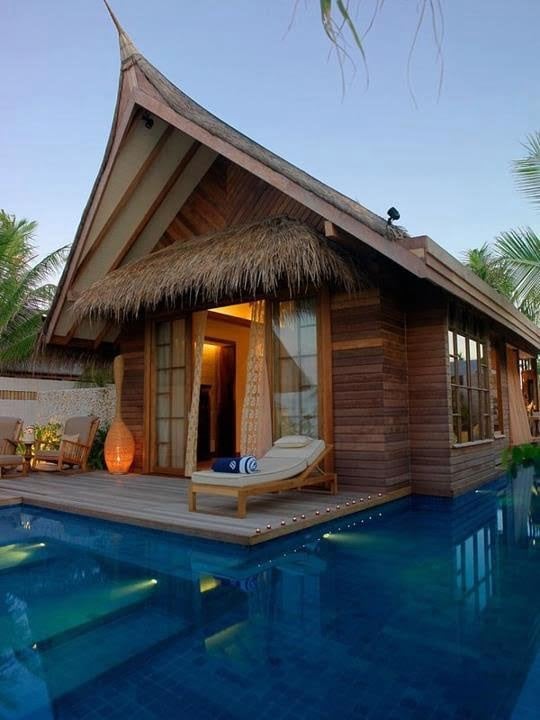
Before talking about where a pool should be fitted or how it should look like, you should always consider its functionality. And, the first question you should ask yourself is why do you want a swimming pool? Will you use it for exercising or relaxing? Will you have enough space left for other activities or just for the pool? Will you use it so much that it will cover its cost or could you make do without it? How will you treat the rest of the landscape? Will you have enough time for maintenance or you'll have to have someone paid to do it for you? And there are still many things to be considered. To sum up, before rushing into acquiring a pool, try to foresee all the aspects of owning one so that you wouldn't end up with a lot of money spent for something that nobody uses, likes or takes care of. When all these questions are answered you can start looking for examples in magazines and on the Internet and, considering that you've done your homework, have all the answers and know exactly what you're looking for, now it will be much easier to find inspiration because you know what to look for.
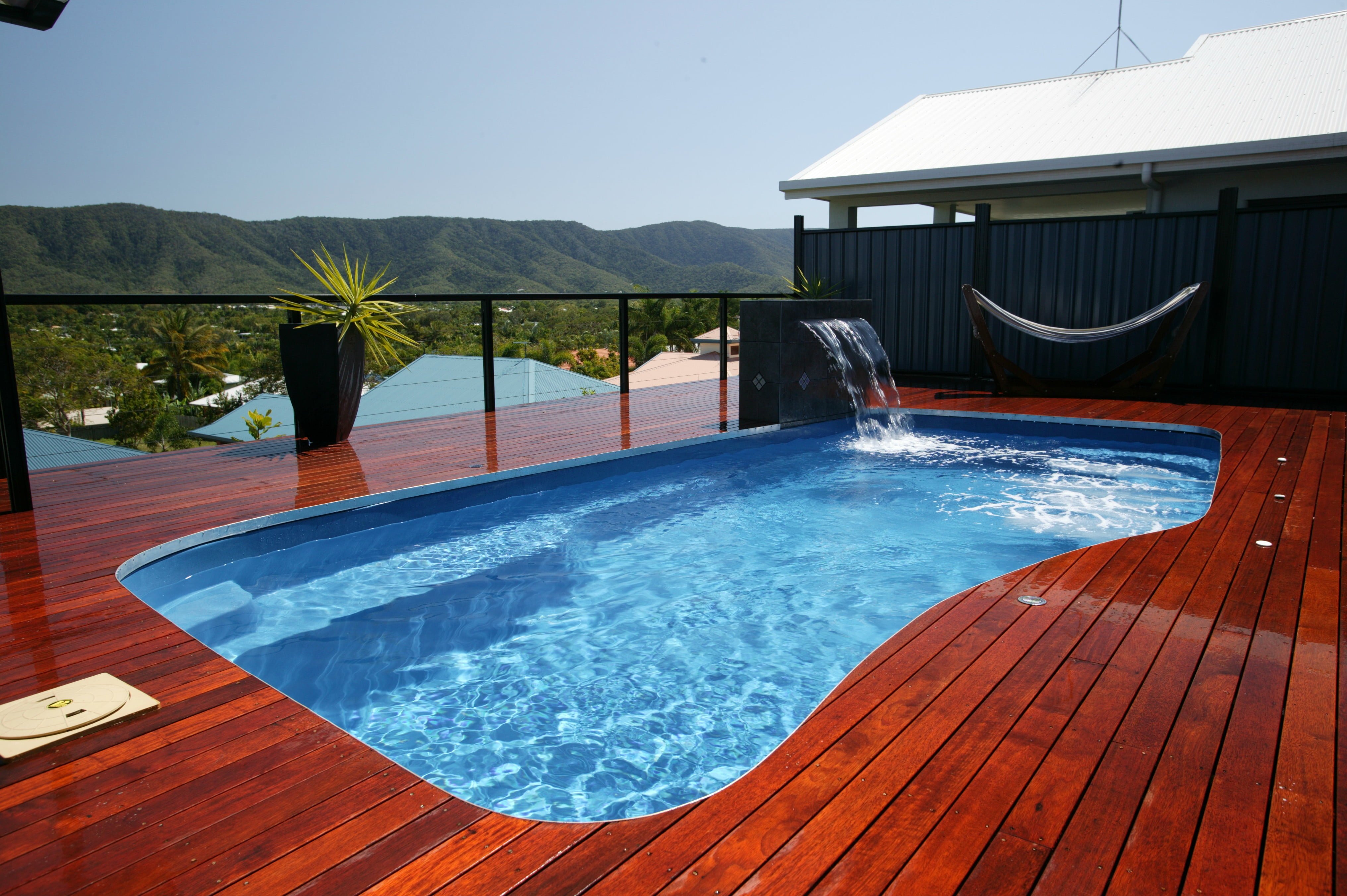
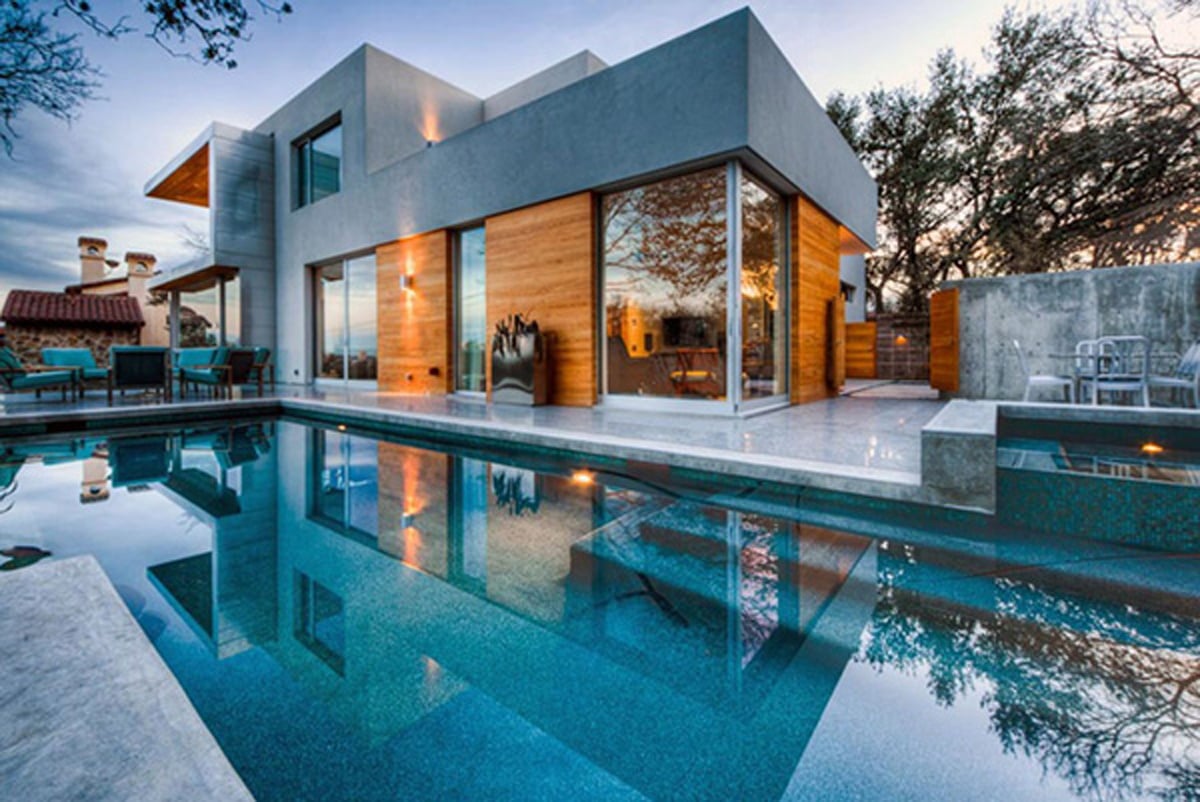
Aspects regarding the location of your pool
Probably the most important decision you have to make regarding your new swimming pool is where it will be located. This is where you should start. First of all, think about its size. How big do you want it to be? When trying to estimate its location, always have in mind its shape too. Will it be irregular and curvy or maybe straight, taking the shape of a rectangle or maybe just a square? Size and shape can vary but they are always in a permanent relationship with the pools purpose. If you want to exercise and swim instead of going to the gym then it should probably have a great length so that you would have enough space to swim. If you agreed upon its size and shape, placing it is the next step. Naturally, this decision varies from site to site because each backyard has its own specifics like size, proportions and the position of the house. But there are some tips that can help anyone decide where to place the pool.
First of all you need to study the amount of sunlight your backyard gets and where does the sun shine the most. The sun is a great factor because it is directly linked to the activity of swimming. No one swims in a cloudy day because there is no pleasure to it and most people like to get a tan while or after swimming. But, who knows, maybe you don't want any sunlight or the area you live in is so hot that you want your pool to be shaded to cool off better. Either way, you need to study this aspect and make a little sketch to organize your thoughts.
The second thing you need to consider is safety, especially if you have children. If you do, make sure that you can always keep an on them, unless you want to have to stay beside them until they finish swimming. Then there is the depth of the pool. The best thing to do is to design in such a way that they can play safely but you can enjoy it too, and this means that the depth will vary and the kids will play and swim in the shallow area while the adults can relax in the deeper area of the pool.
The third most important aspect of your pools location is its relationship with the rest of the house. Think about it. You will spend much more time looking at it then swimming in it. And that's why a pool becomes part of the design of your entire home. It's a big element that influences both exterior and interior attributes of your house.
There are many more things that require your attention but I will only mention two more. The first is the ease of access which is important because it can enhance or decrease your desire to use the pool and so its quality and its value (this also includes the materials used for the pathway to the pool which you should carefully choose so that it won't be slippery and so reduce the probability of unwanted accidents). The last aspect regards installations and utility lines. If you carefully plan your pool so that you won't have to move any existing utility lines, you will save some money.
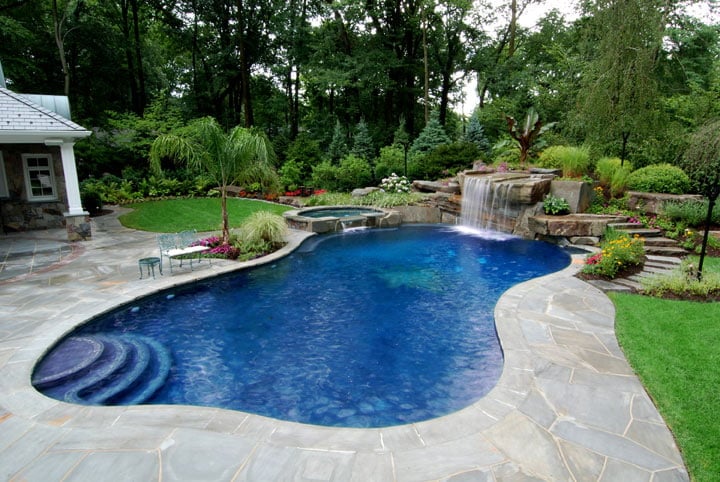
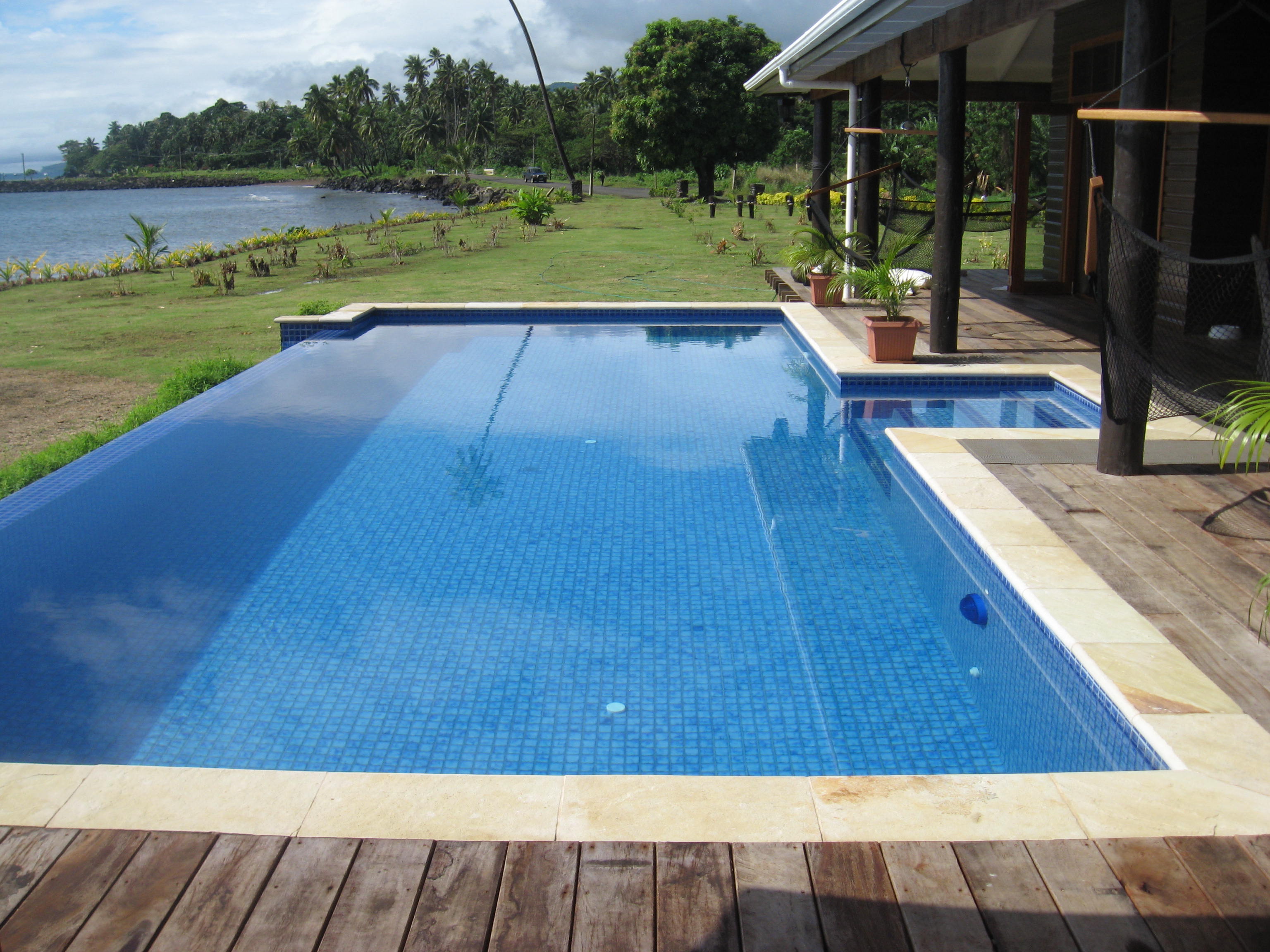
Aspects regarding the shape of your pool
A pools shape is greatly influenced by its position. There are two main categories: pools that are placed near the house and pools that are placed farther out in the backyard. Why is this important? Because if a pool is close to a construction, than it becomes its extension, an annex and should take after it, resembling its style and shape. If it is positioned somewhere in the back of the yard then it becomes an independent element that can take any shape and focus the activity of a family around it. Mainly there are two large categories of swimming pool shapes: rectangular ones which are the most common and are characterized by straight lines but not necessarily but 90 degree angles and curved pools which can take any shape you like and can easily mold after the rest of your yard, following for example the access paths or other amenities (most popular curved shapes are the kidney shape, the figure-8 and the freeform). When deciding upon the shape of your pool, always bear in mind that pathways are more important than the pool itself and that you don't want it to become an inconvenient. Think about the other activities that might take place in your backyard and try to imagine how they will relate to your swimming pool. The end result should satisfy every need and every activity should be able to be performed independently.
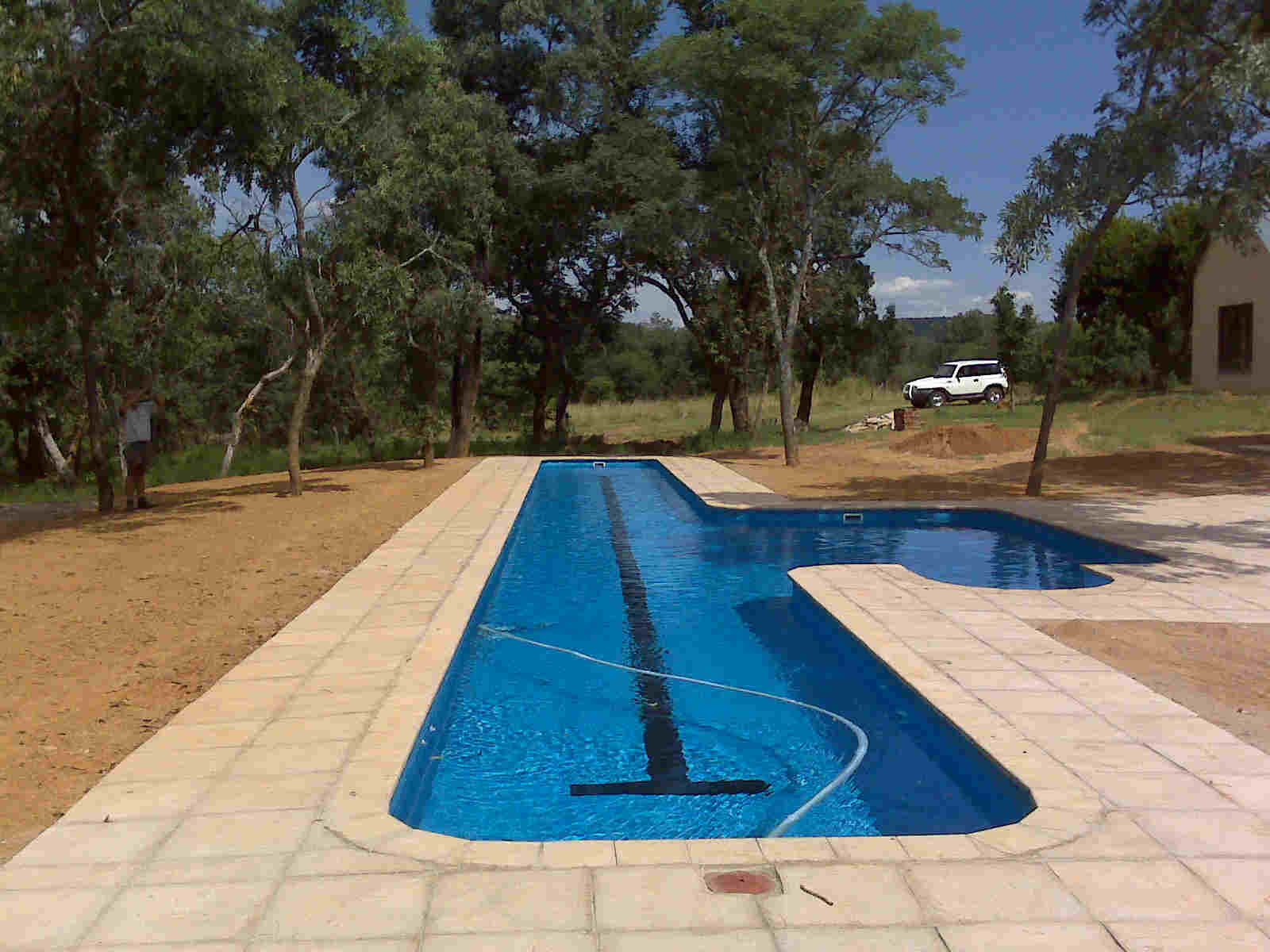
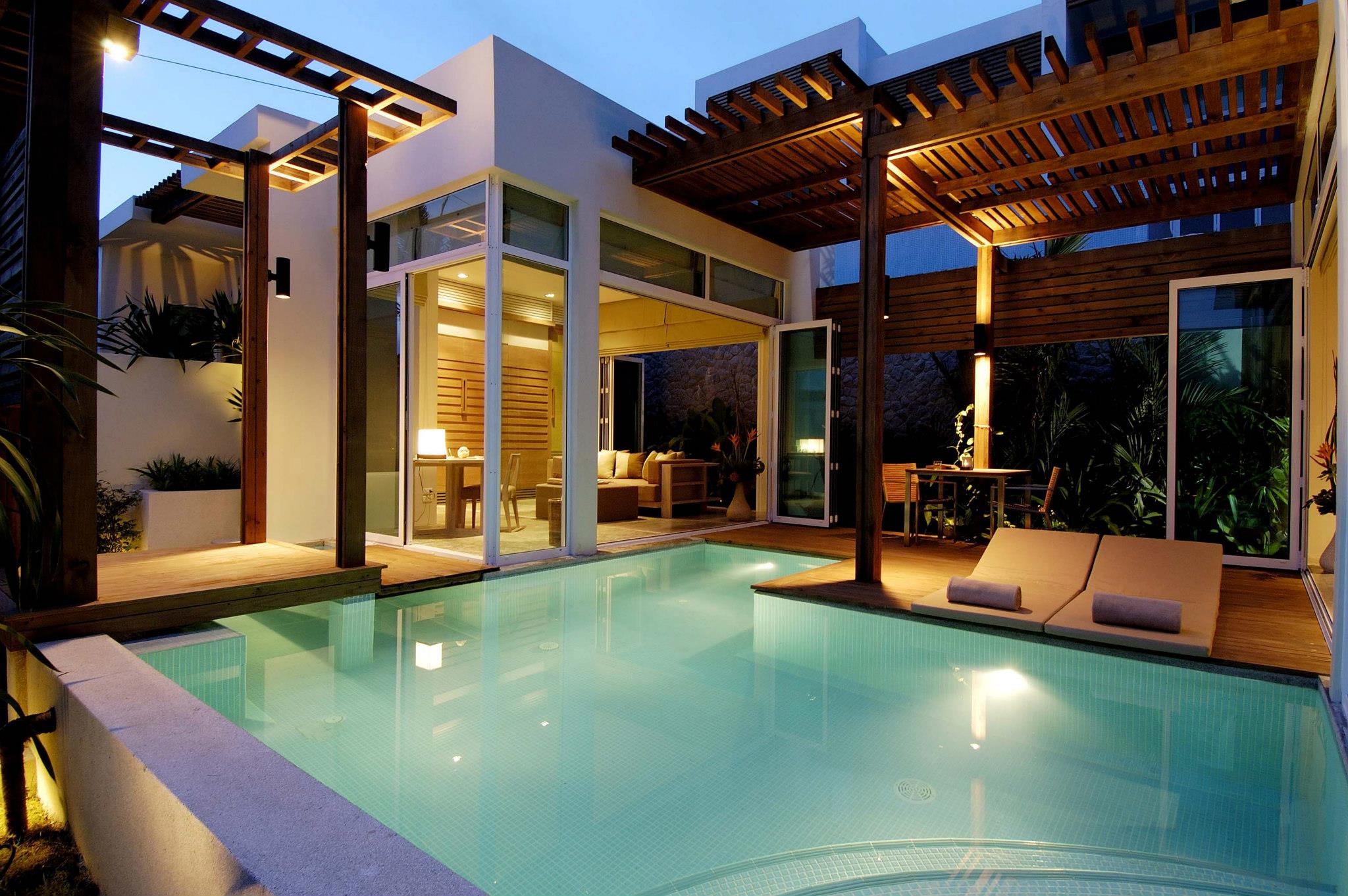
Aspects regarding materials
Such a major project requires a lot of pre-designing and, before you put your thoughts into action, there are several considerations to be made. A great deal of importance should be given to materials, which should be chosen in a way that satisfies four major aspects: safety, comfort, appearance and durability, the order of which differs from case to case. Keep in mind that you have to decide upon materials for the coping, the interior of the pool, the pool deck and the water line. But before you start doing that, you need to ask yourself some questions and determine your expectations from your pool, regarding all the aspects mentioned above. What do you want it to look like or perhaps resemble? The color range is different for every material so think about this too. Do you want it to last forever or perhaps until the kids go to college? What other materials can be found in your backyard and how is the swimming pool going to relate to them? What budget can you allocate for this project and for its maintenance? All these questions must of course be answered while considering all the other aspects like size, placement and overall design. But there are some things that should concern you more than others. For example, any material you choose will be in contact with the chemicals that the water has in its composition which can alter the surface of your pool. However, they will also be in contact with the swimmers so try to find non-slippery materials that also provide your pool with a nice and welcoming appearance. Regarding colors, keep in mind that the darker they are, the more sunlight they'll absorb and so, the hotter they'll be, reducing comfort.
These are the main types of materials for the interior of the pool: in-ground vinyl liner, pre-cast fiberglass and concrete. Naturally, you can also choose an above ground swimming pool, which is the most economical choice but doesn't possess the best appearance.
Vinyl lined pools are very affordable and, if installed properly, they will provide your yard with some nice esthetics. However, there are some drawbacks: they present maintenance problems, it's hard to match other materials with it, they provide little insulation (will lose much of the heat accumulated by day during the night), they have a short life expectancy and last but not least, such a pool will not add value to your house as the other two types.
Fiberglass pools have become much more popular over the years then when they first appeared because the technology and the materials are evolving very fast and constantly increase their quality and improving design options, strength and longevity of this product. This type of swimming pool is actually a precast shell that is then put into a previously dug site and then finished off with the decking; this means that construction measures and process are a lot simpler than for a concrete pool, offering similar advantages at the same time . They are also a lot cheaper to maintain than a concrete pool, costs being reduced to less than half, depending on size. On the downside they are not very customizable and you are limited by the transportation process; the maximum width is just 18 feet.
Concrete or gunite pools are the most popular especially because they offer many design possibilities and are the most durable of the three. The construction process involves steel-reinforced rods that are sprayed over to create a smooth surface that is finished afterwards. Plaster is the most common finish and has a life expectancy of 10 to 12 years; it offers a large range of colors and patterns so it’s very easy to blend with the materials surrounding your pool (remember that the plaster color will be the water color so think about what do you want your pool to resemble; a light pool will imitate a tropical water color while a darker material will make it look like a natural lake). You can also finish off the concrete with an exposed aggregate (made from crushed pebbles) which is more expensive but provides extra safety and durability. The most expensive finish is the ceramic tile which demands minimal maintenance and it looks better, more elegant than the other two. Here's a short list of materials (the order indicates increasing costs but also longevity and esthetics): marcite plaster, colored plaster, pebble tec, beadcrete and glass tile.
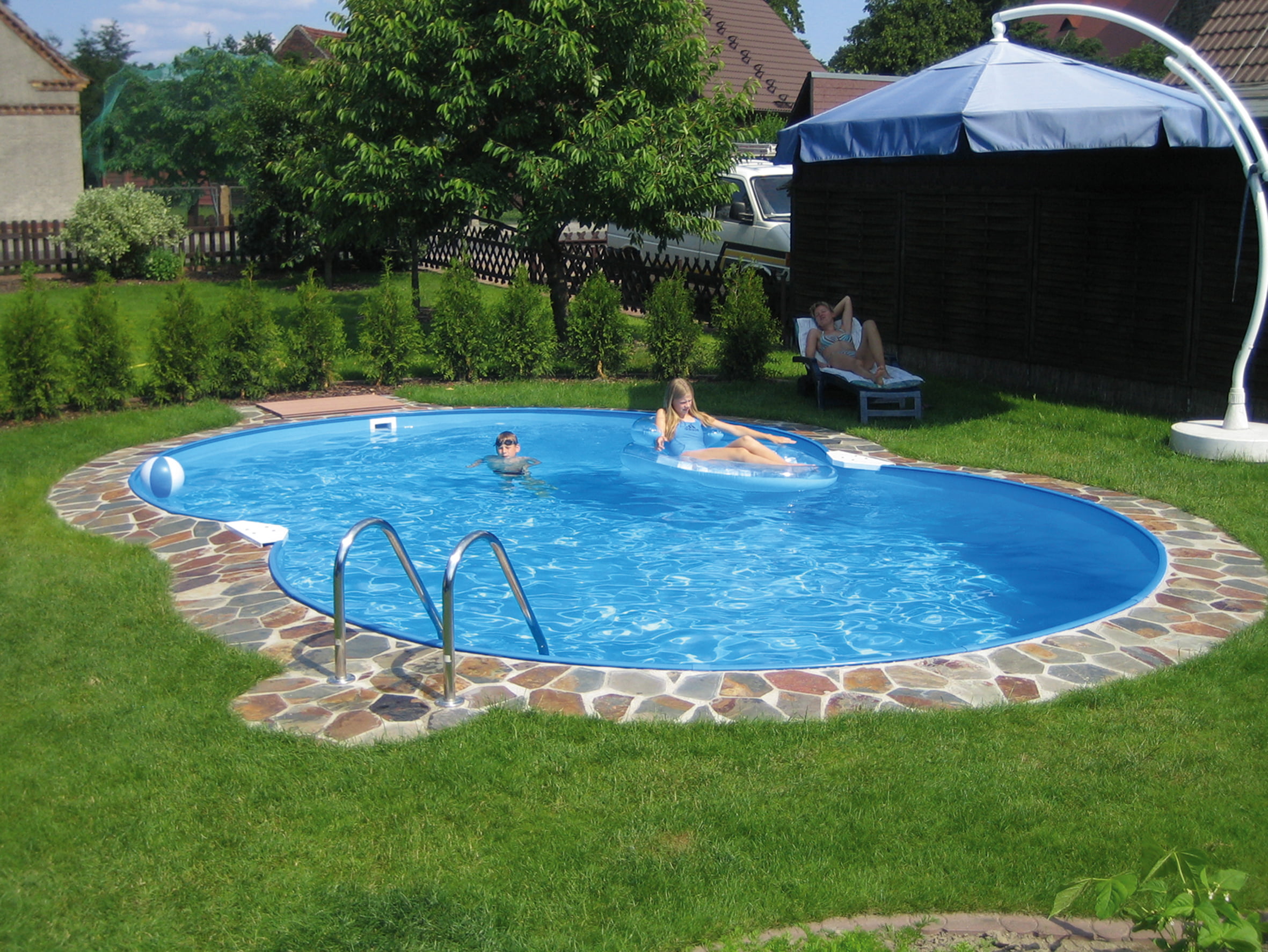
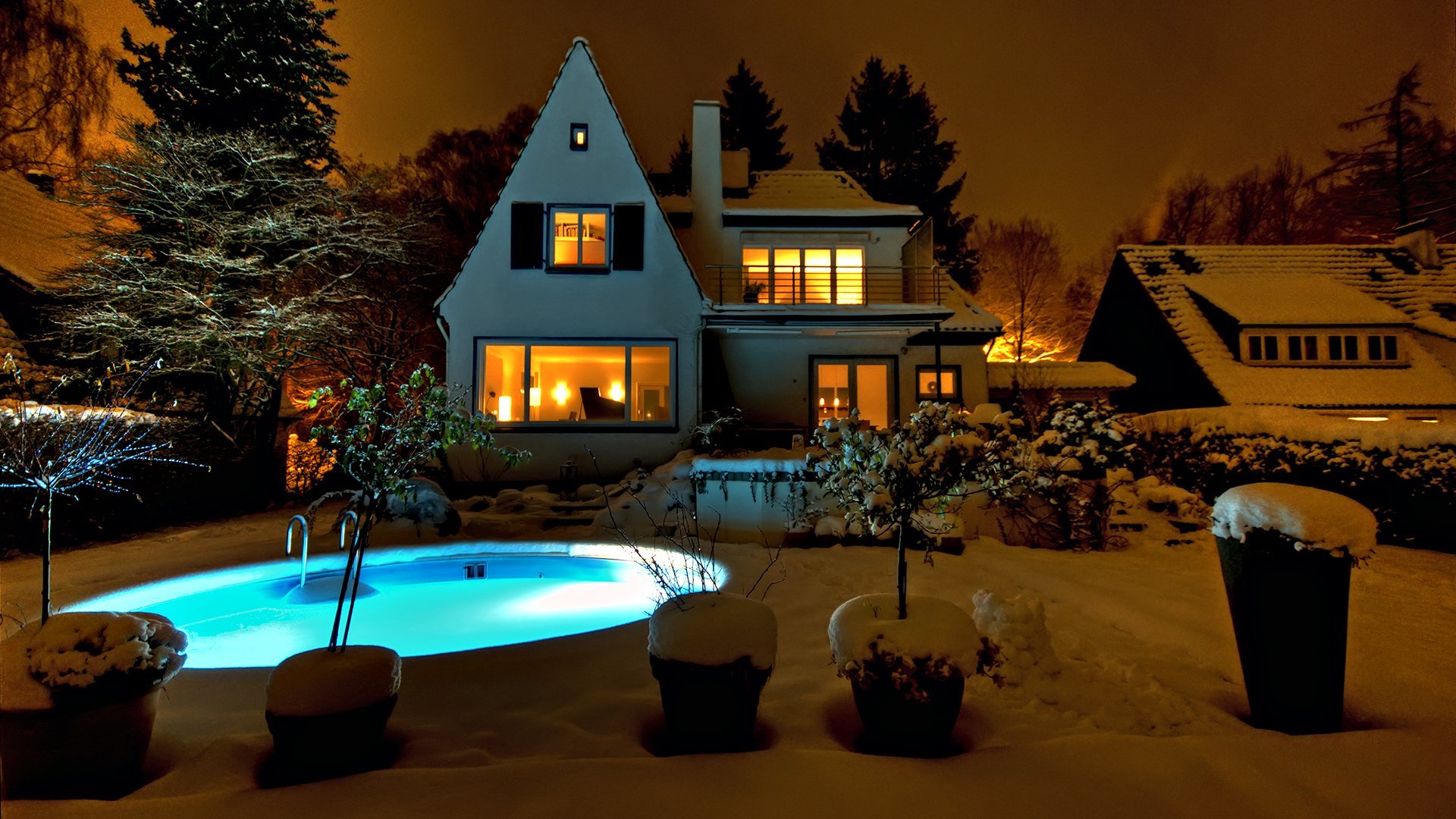
Aspects regarding the deck
This part of the swimming pool design is all about the looks and the match between the deck and house, the paths and walkways. The matter of safety and obtaining a non-slippery surface is less important because almost every material nowadays is designed to comply with these demands (be careful though when choosing the color because it will influence comfort due the heat absorption factor and make sure that the deck won't get slippery when wet). Plain concrete is the simplest choice which meets expectations in terms of safety, reliability and comfort but is very inexpressive and lacks that touch of flamboyancy. You can also opt for bricks or concrete pavers which are a more colorful and lively choice, and also very comfortable. More expensive but better looking choices are fieldstone, slate, flagstone, and marble, which are also able to make your swimming pool look more natural and will probably resemble a scenery like a lake in the woods or a Mediterranean landscape. You can also go for wood which will enhance the rusticity of your backyard but will require frequent refinishing, rubber (easy to clean up and can take almost any shape you want) or for a spray-on coating which is basically a cement based material that doesn't heat up and is easy to maintain.
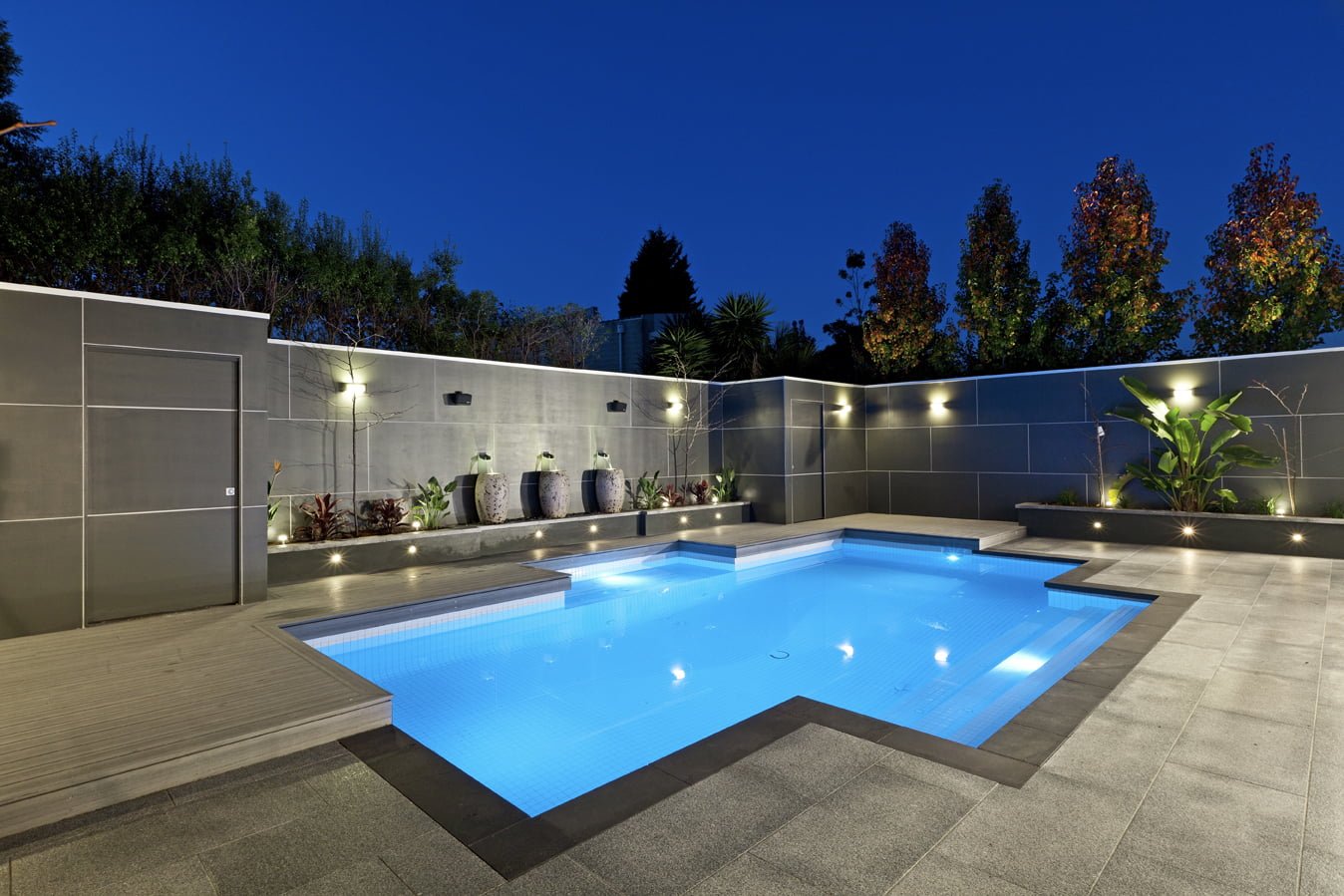
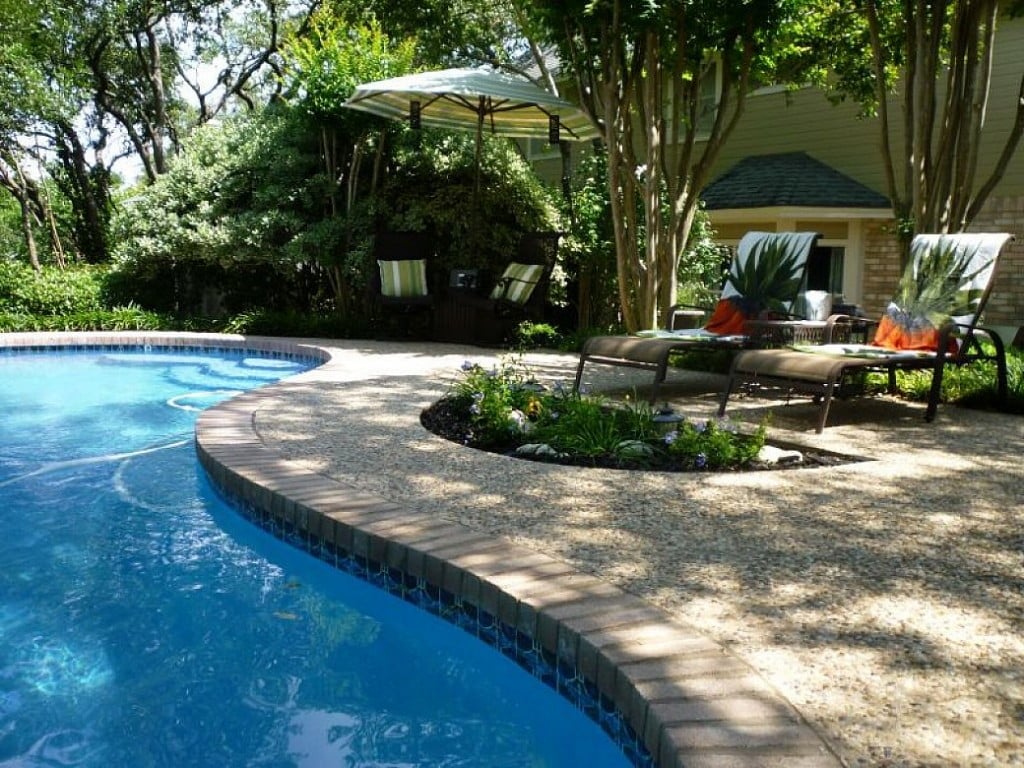
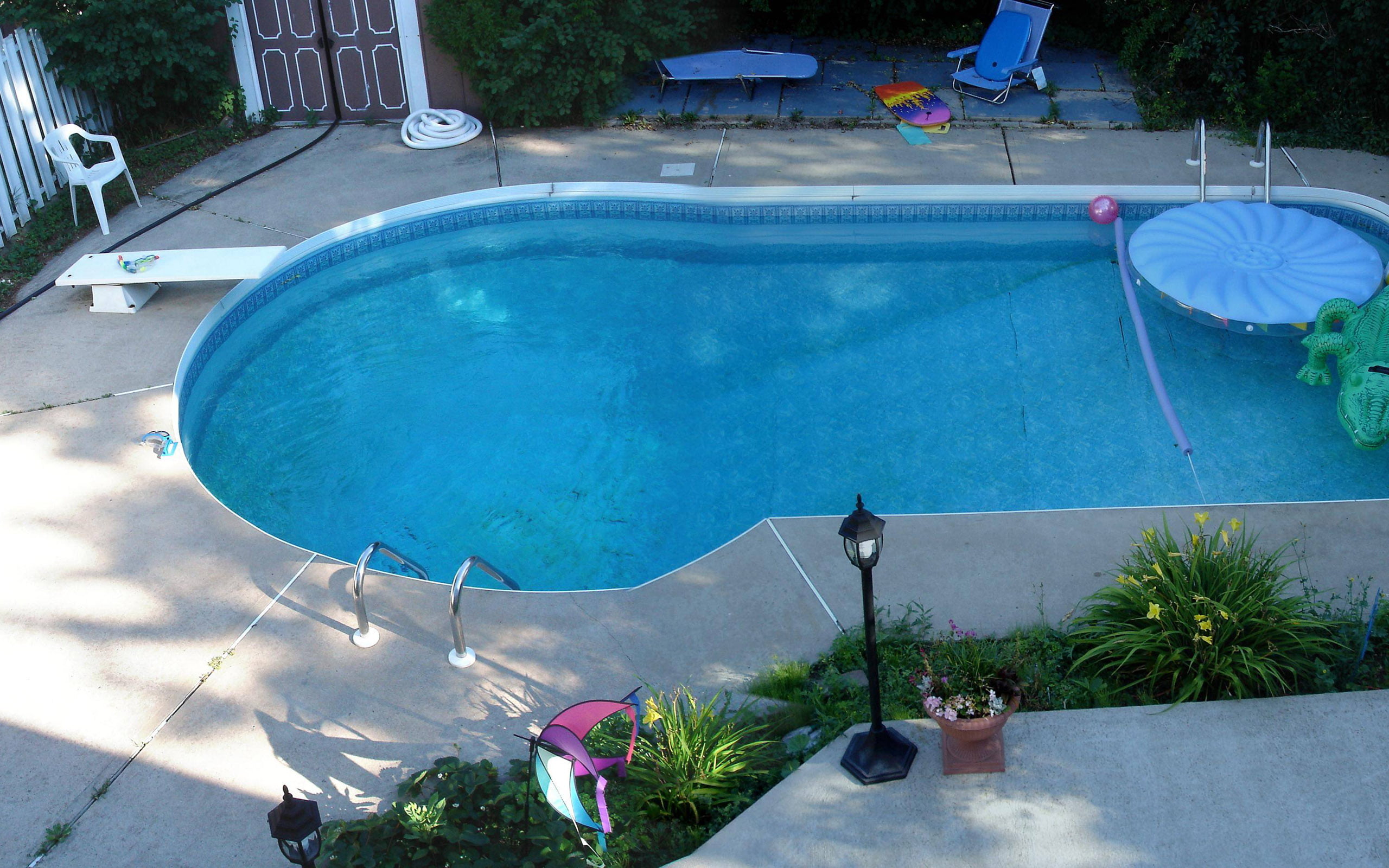
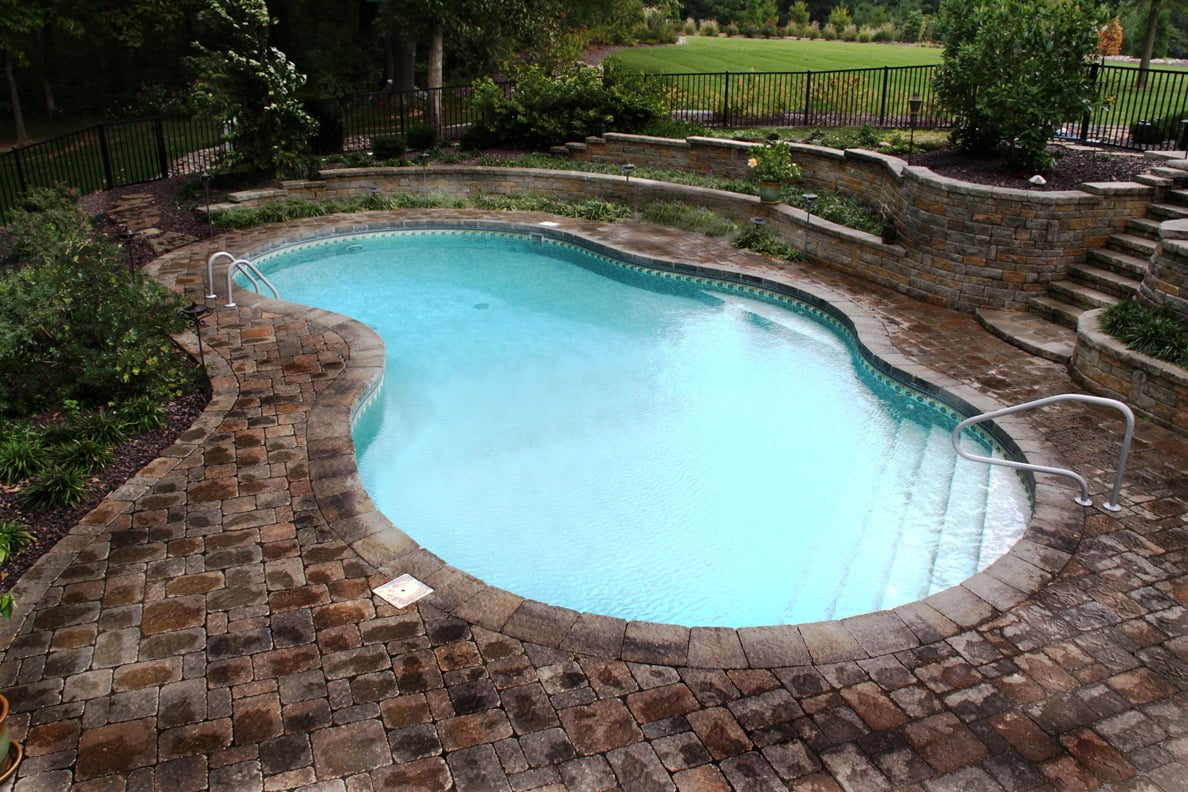
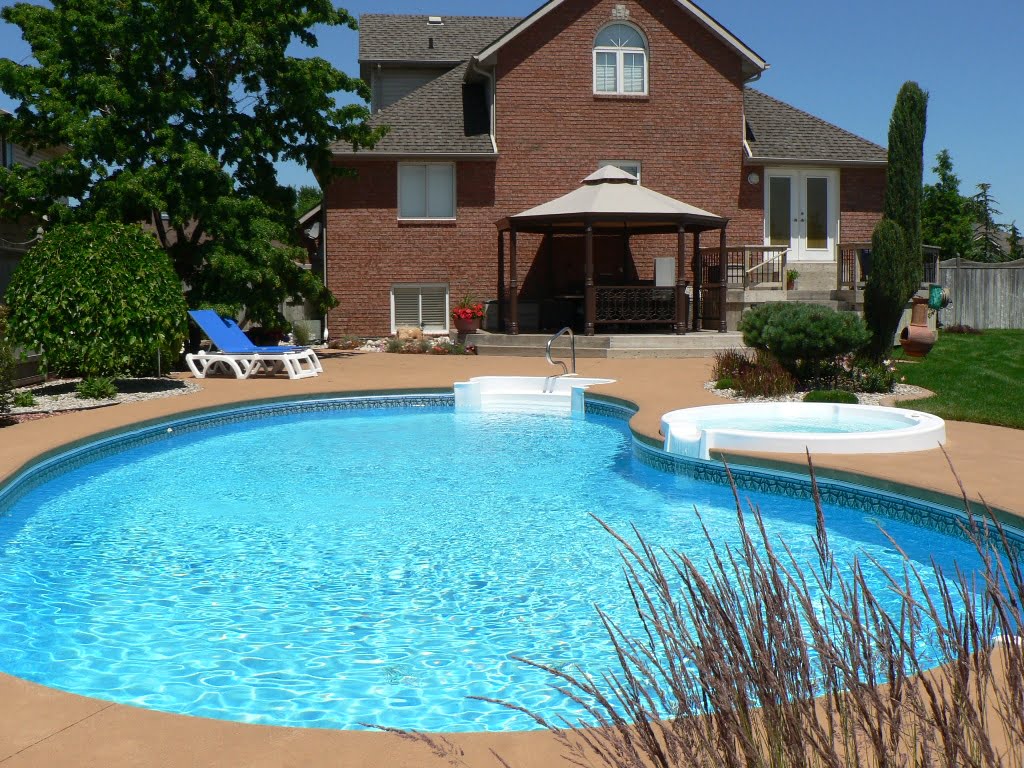
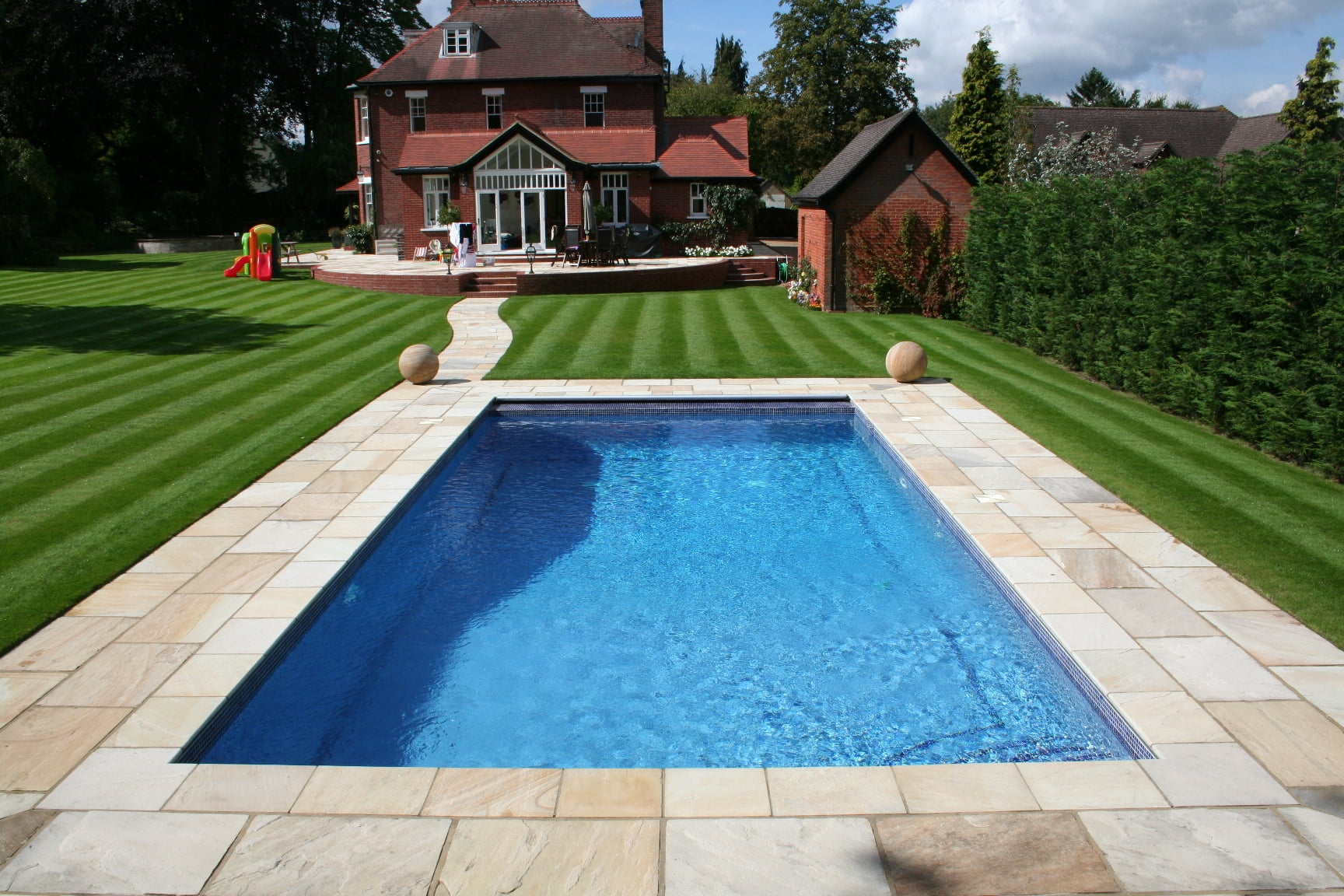
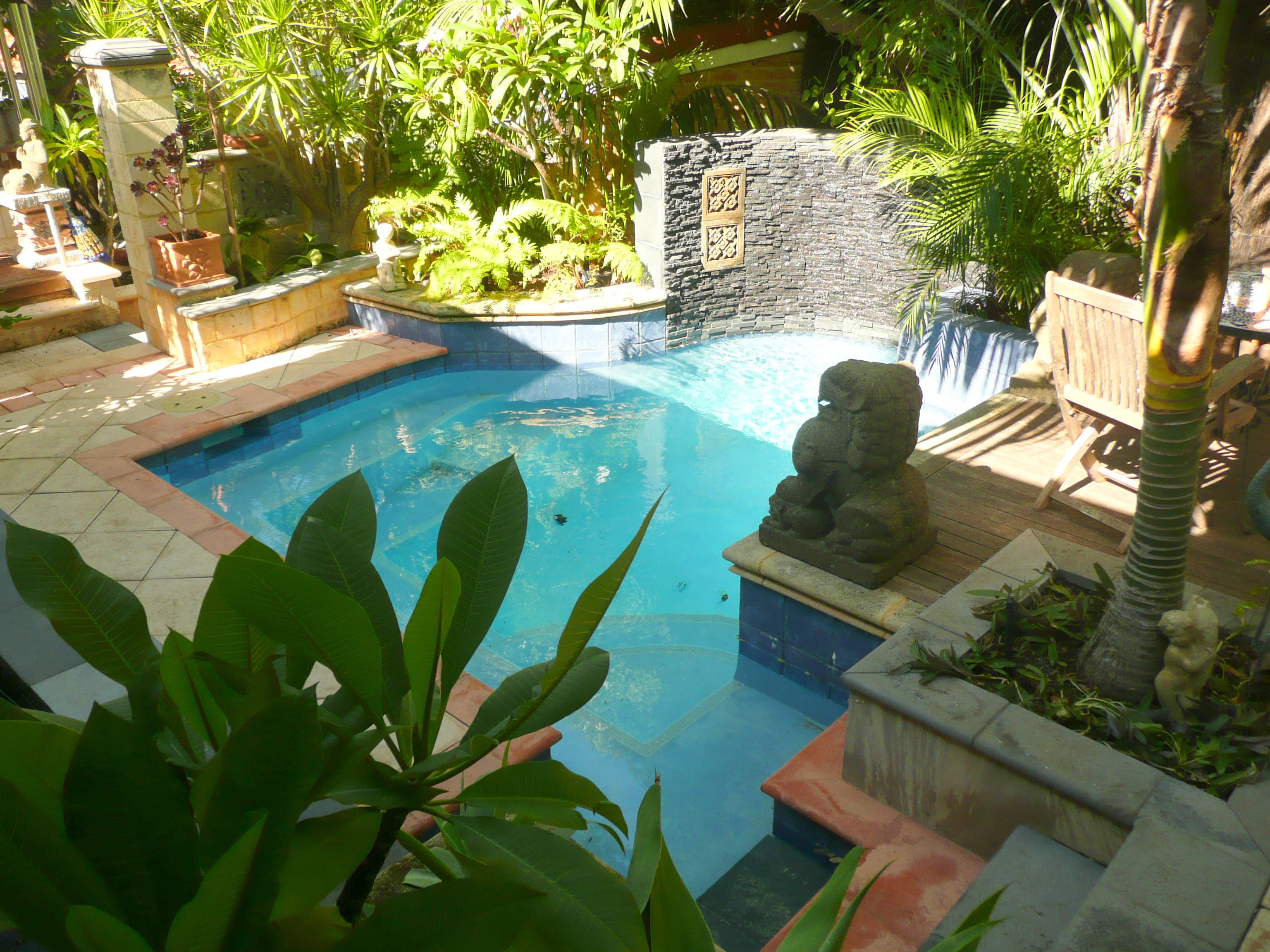
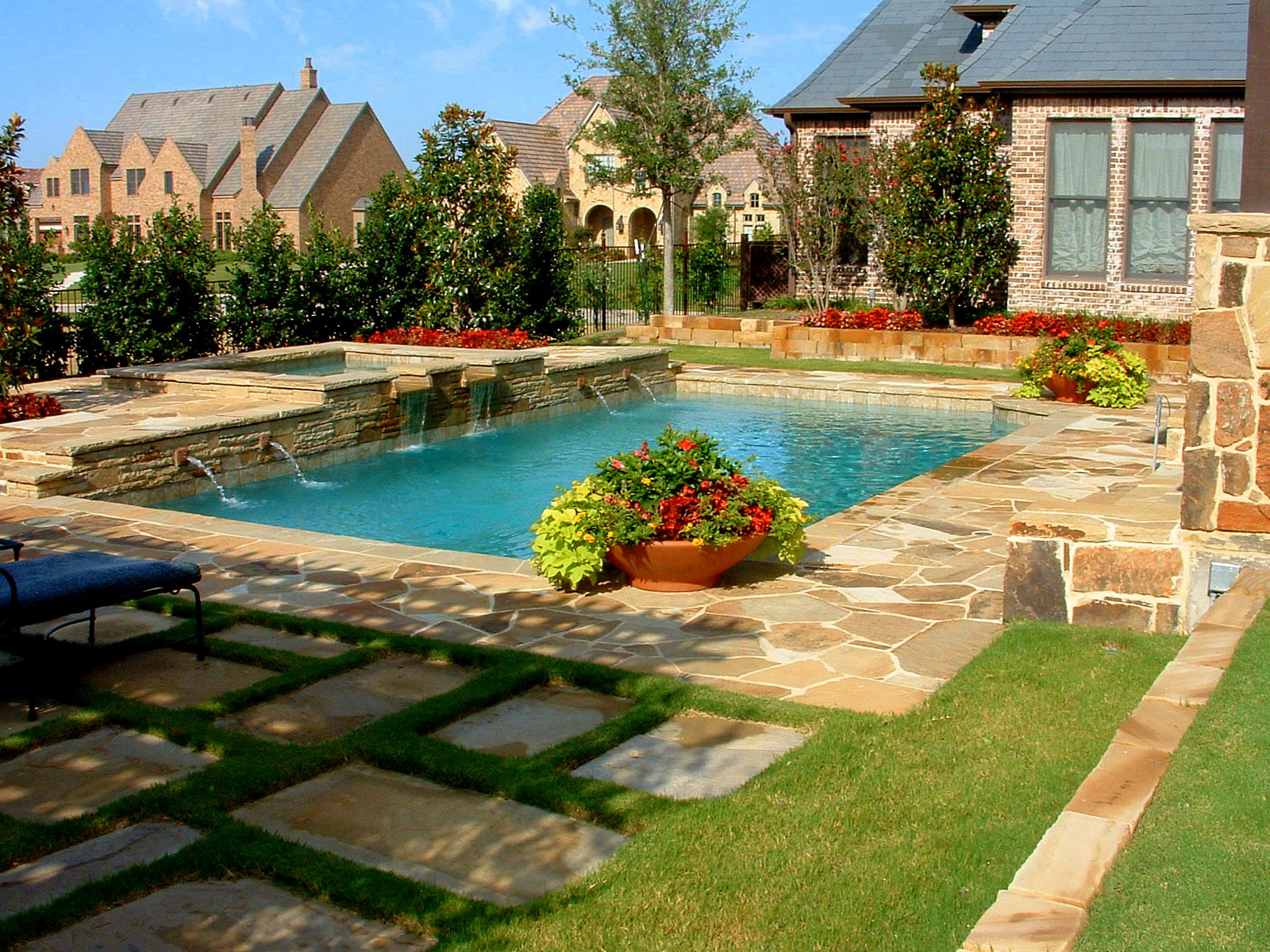
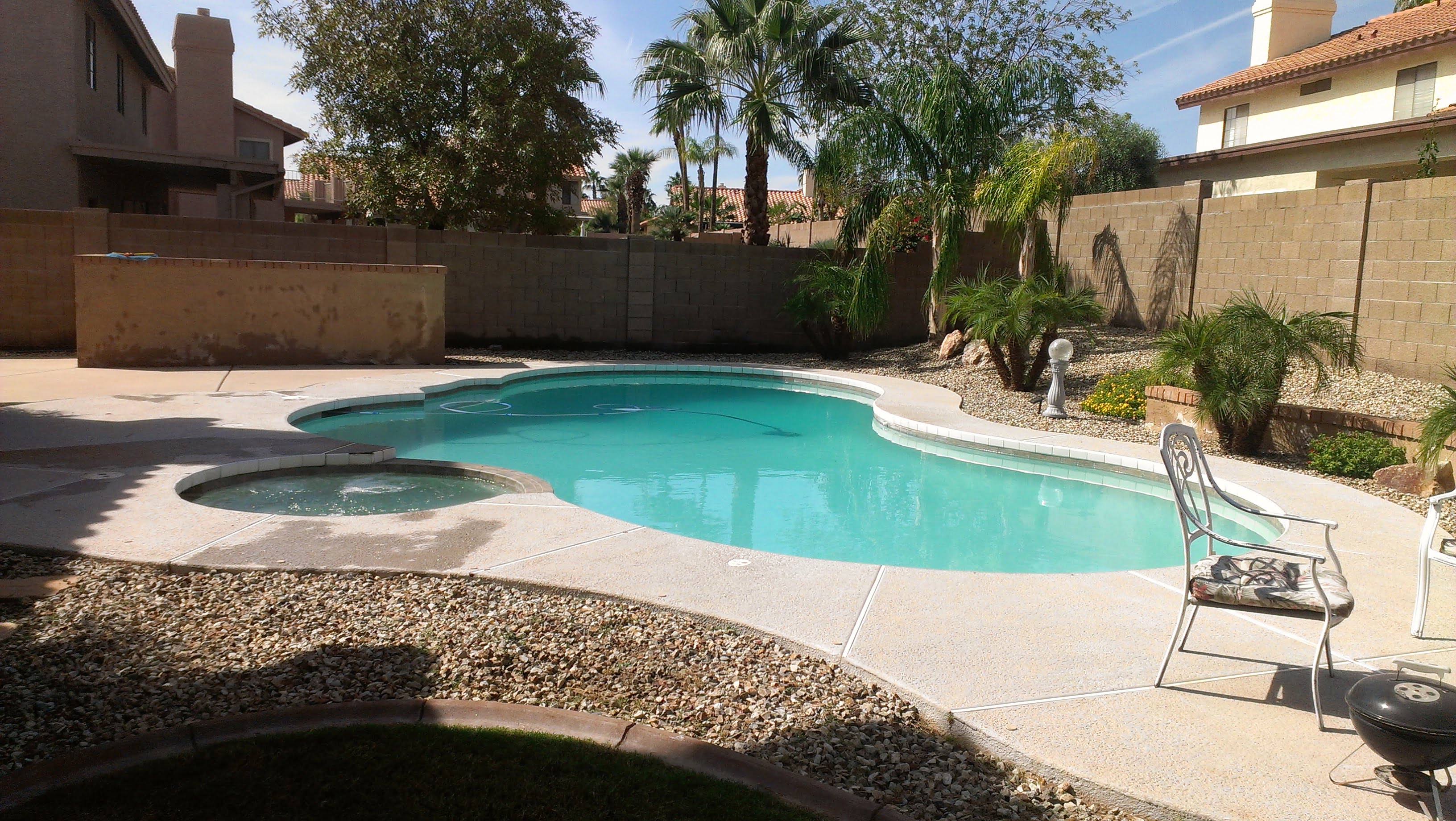
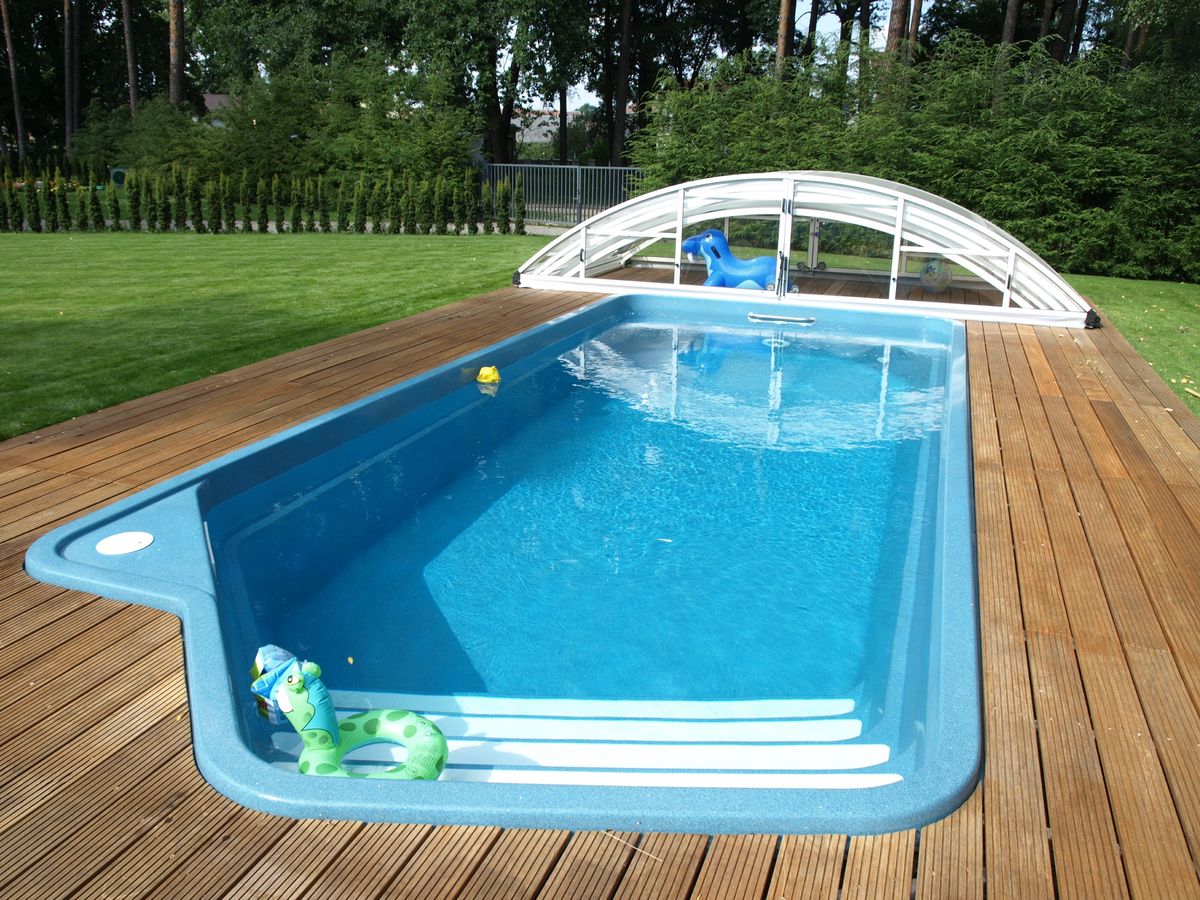
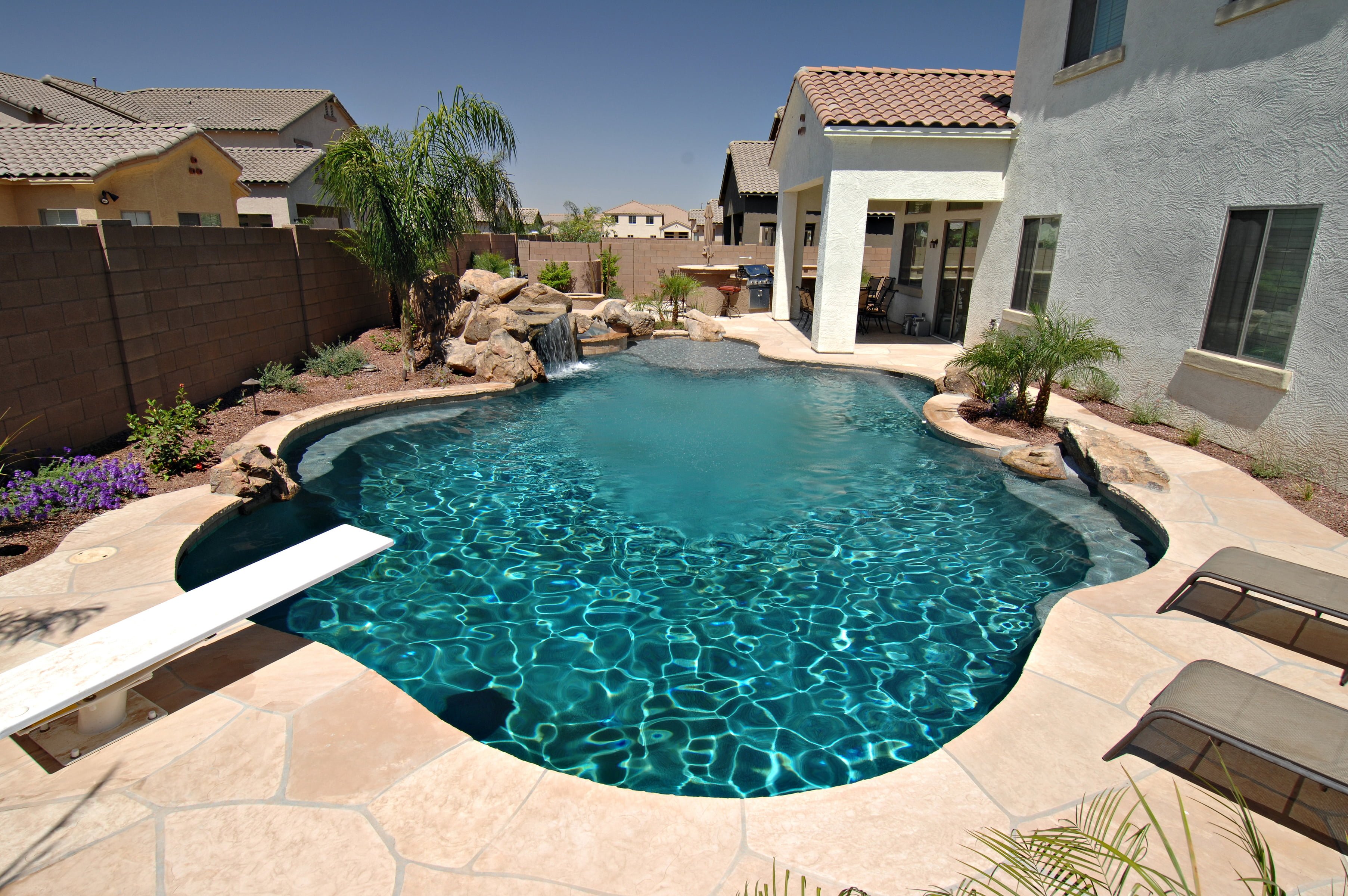
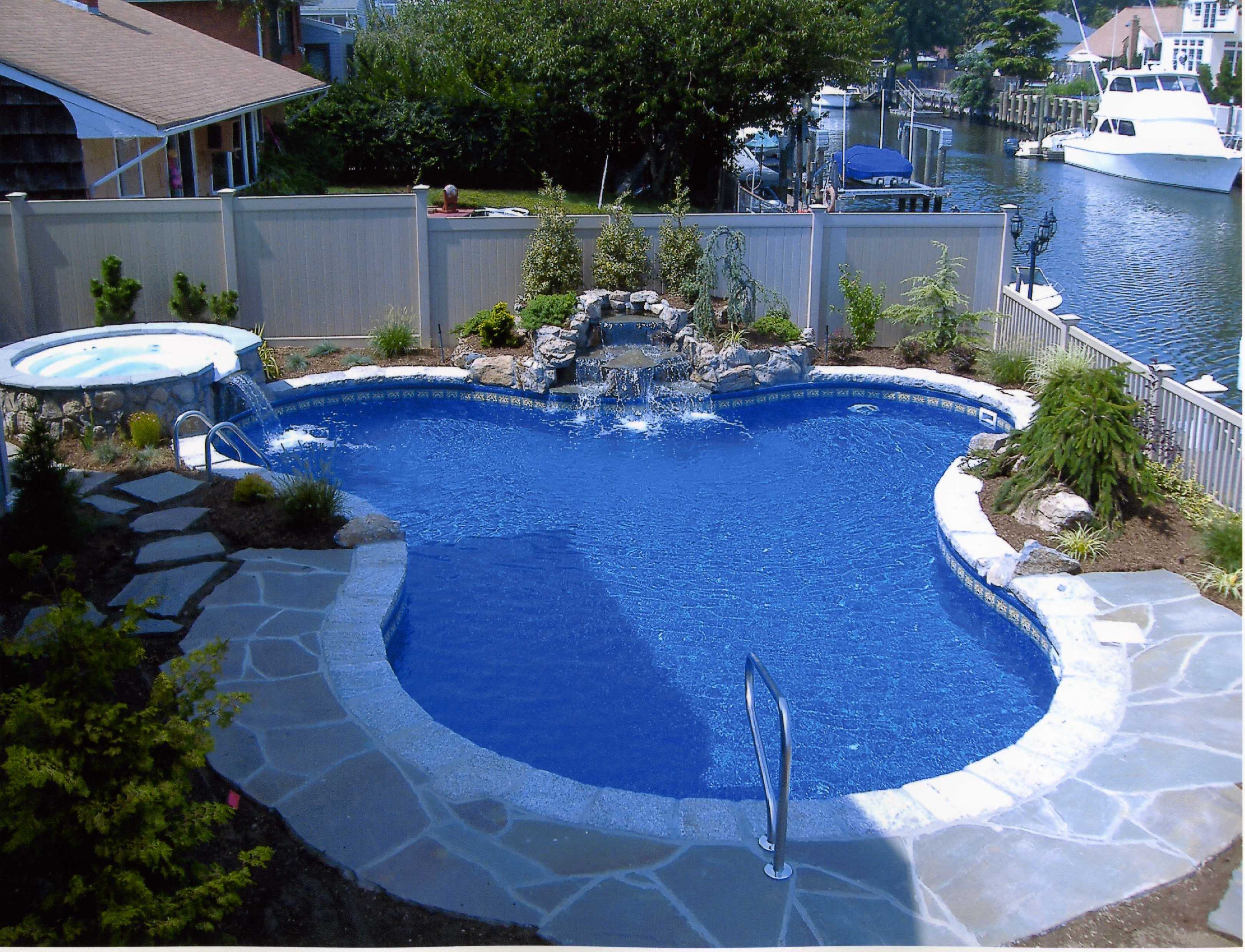
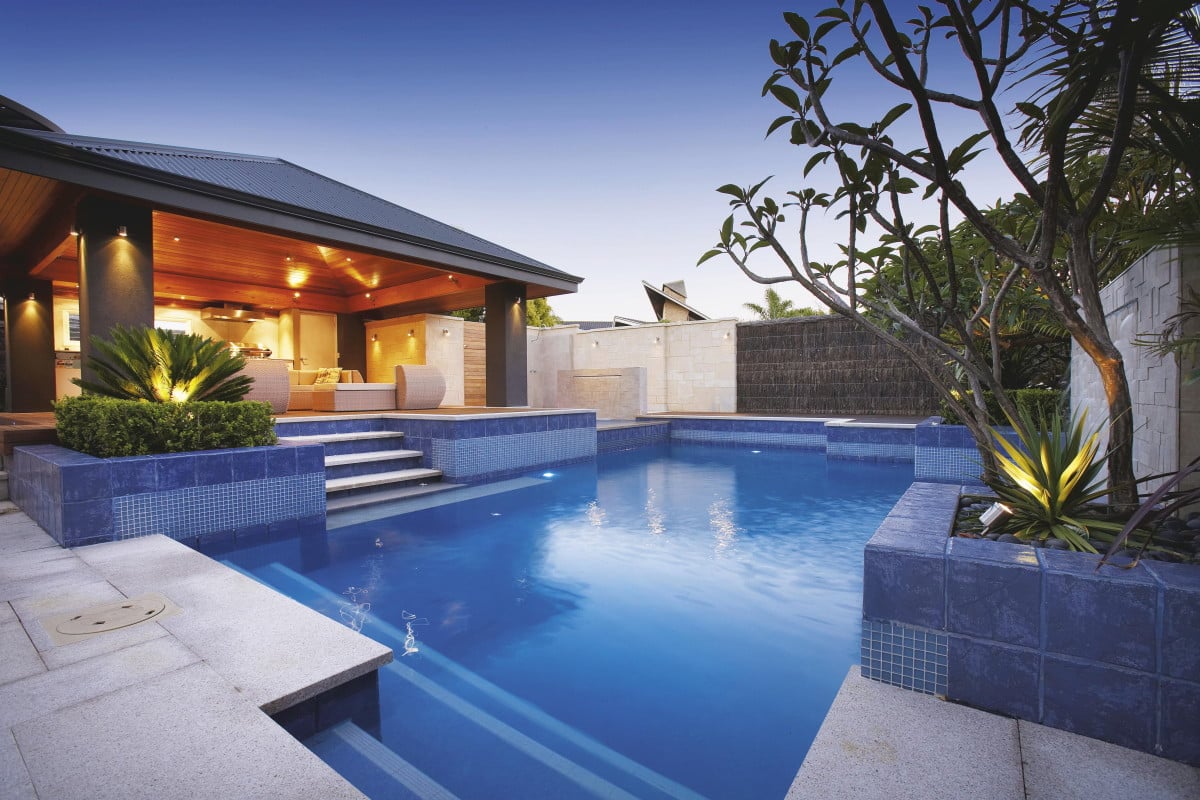
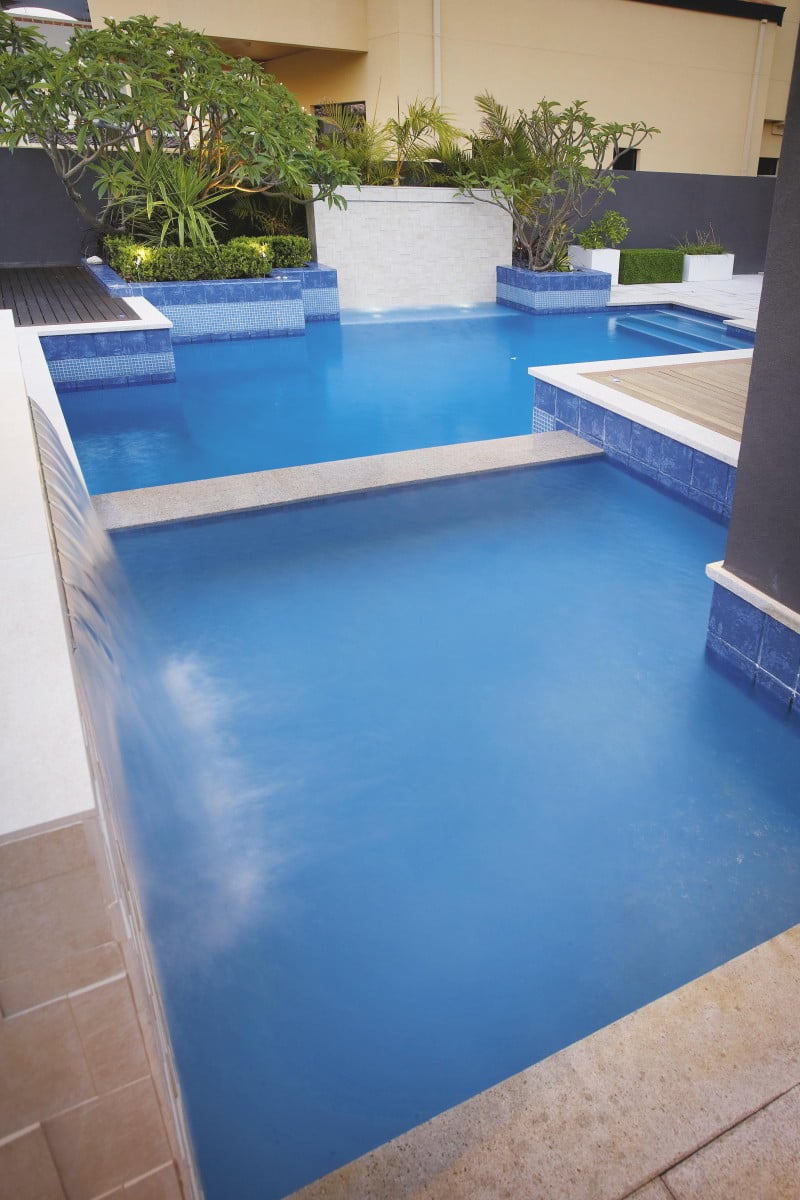
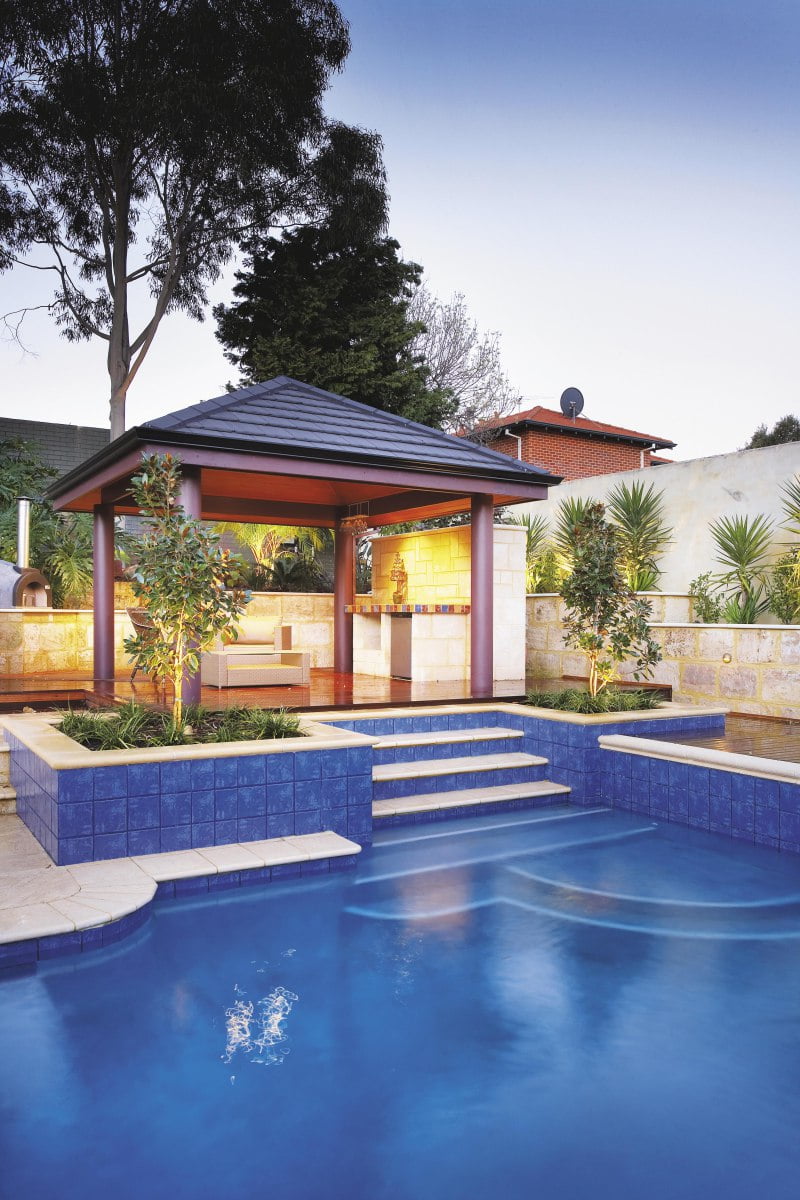
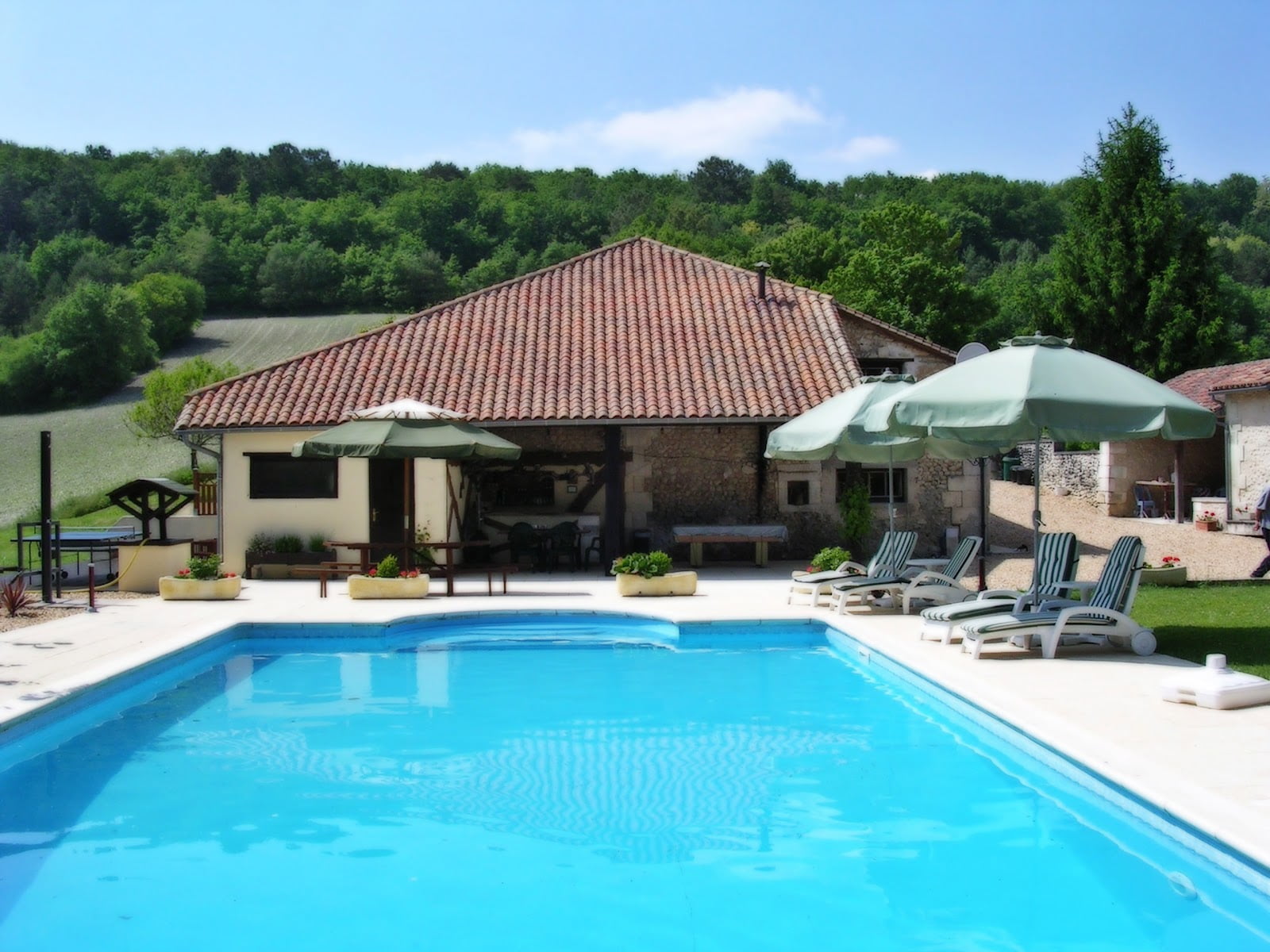
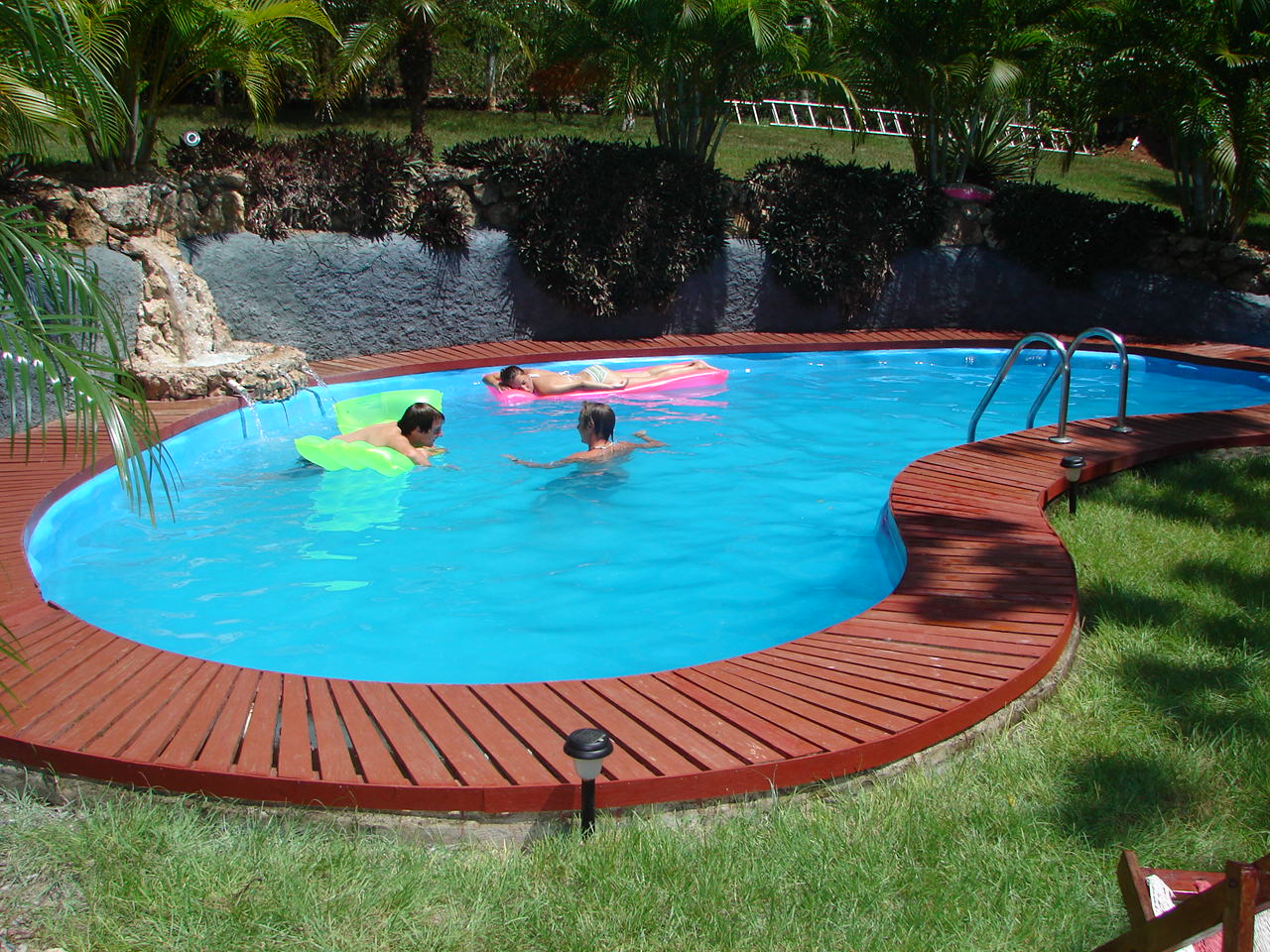
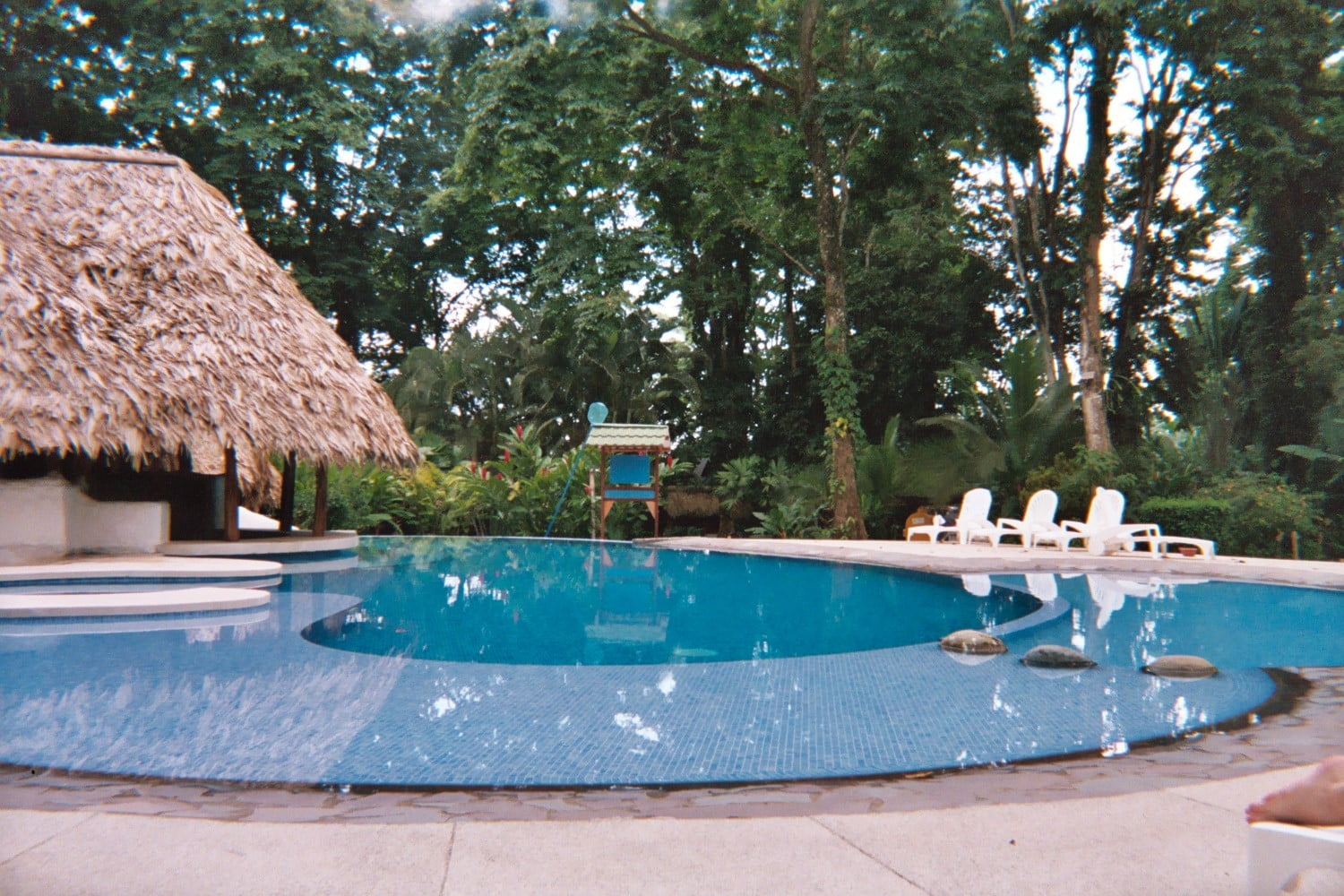
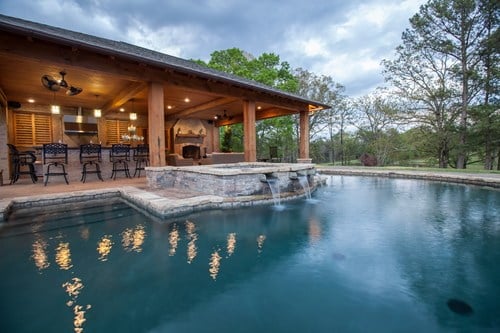
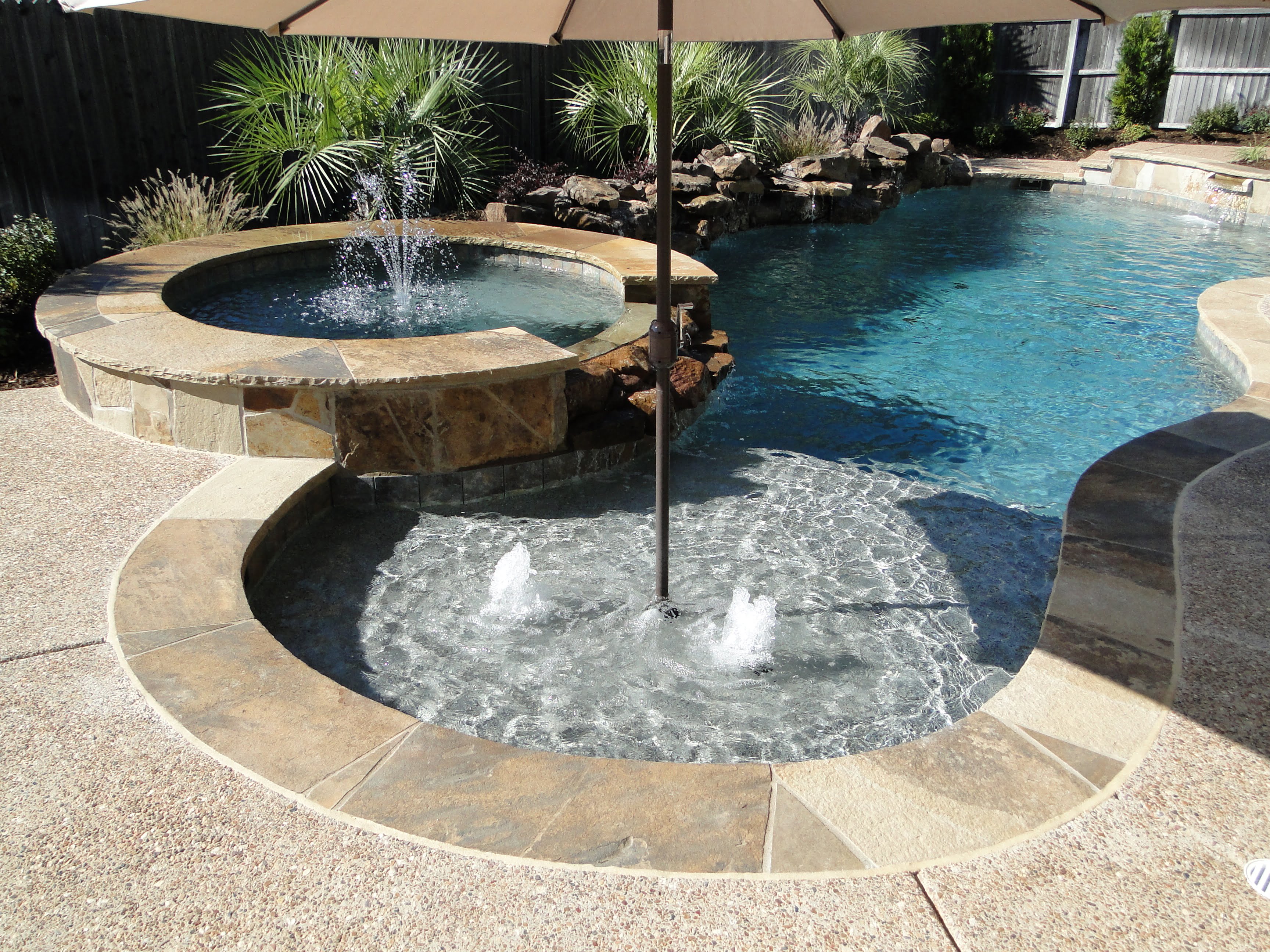
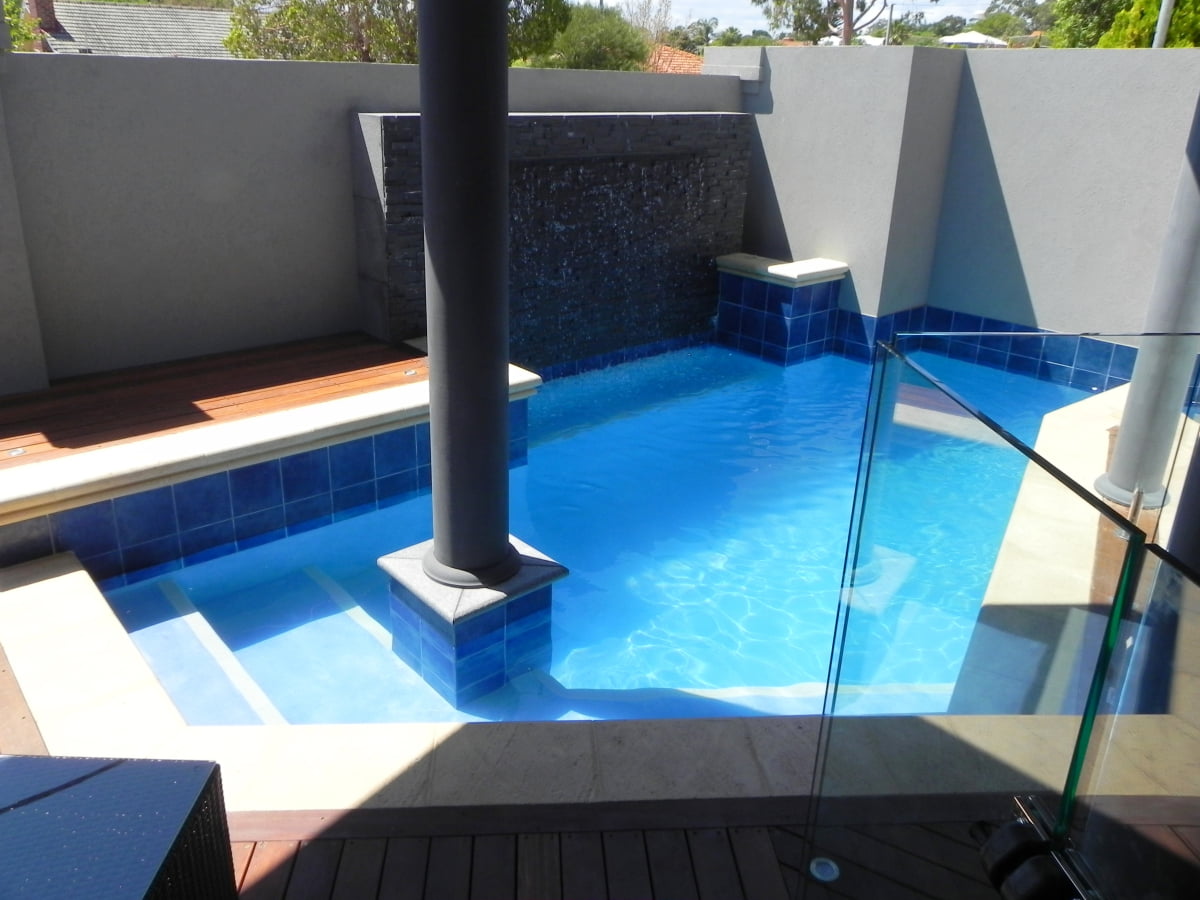
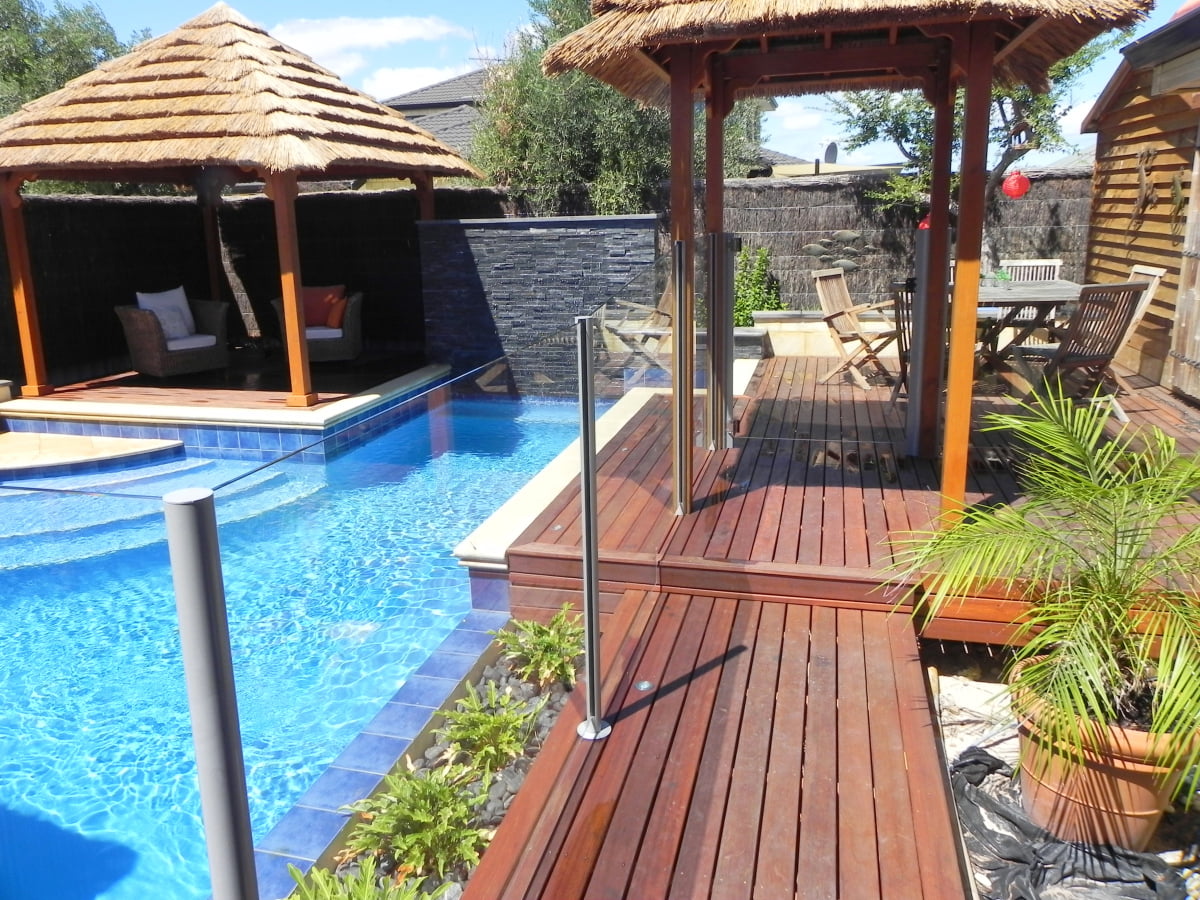
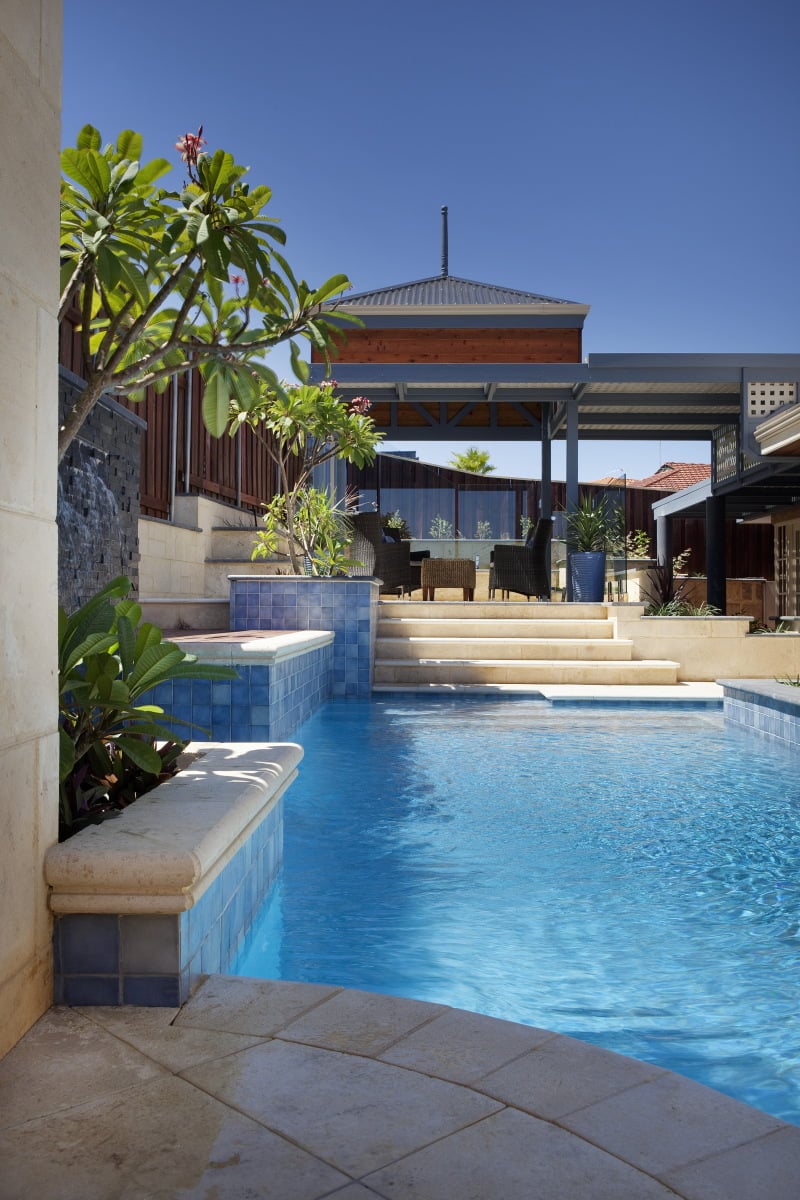
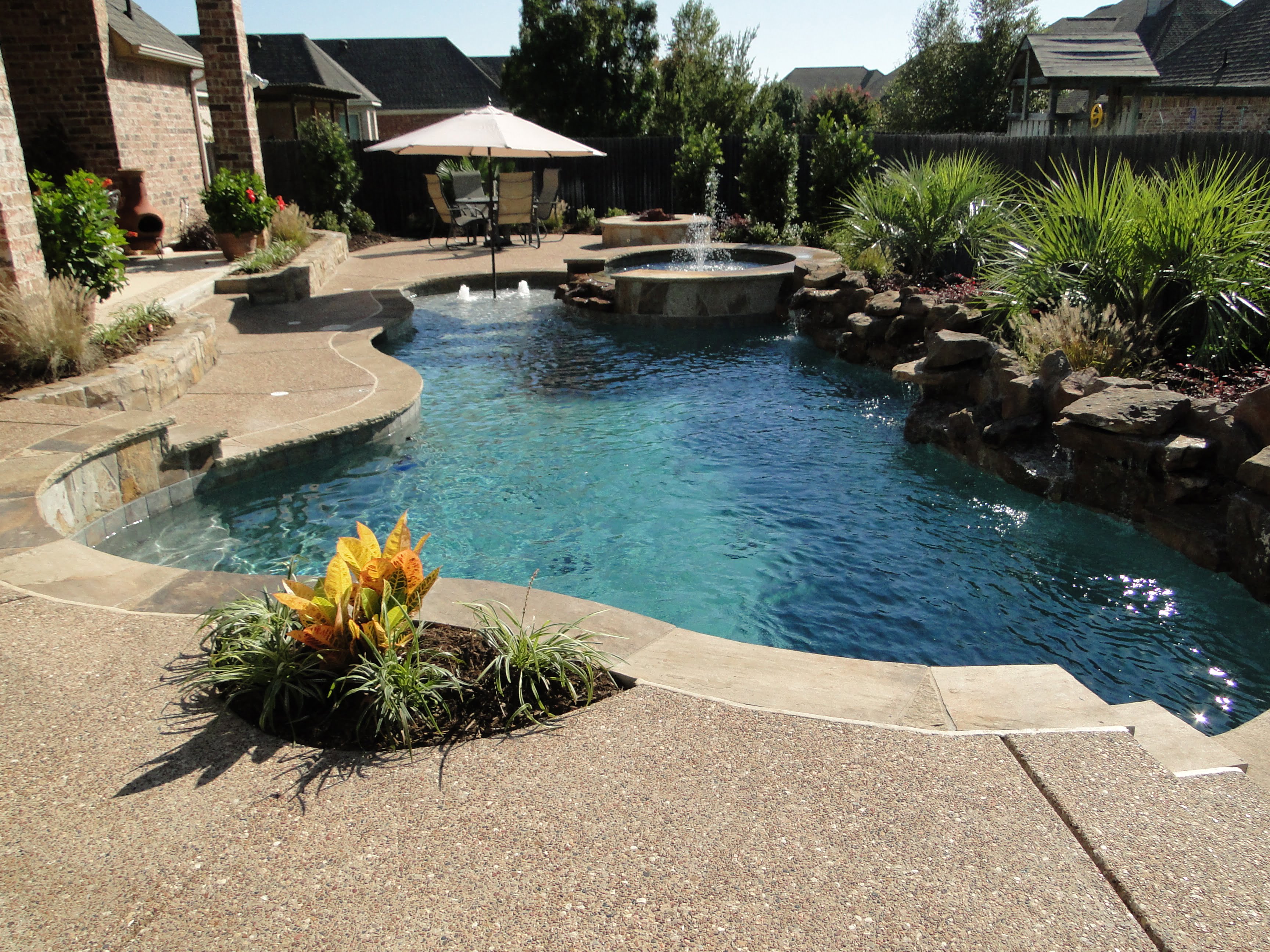
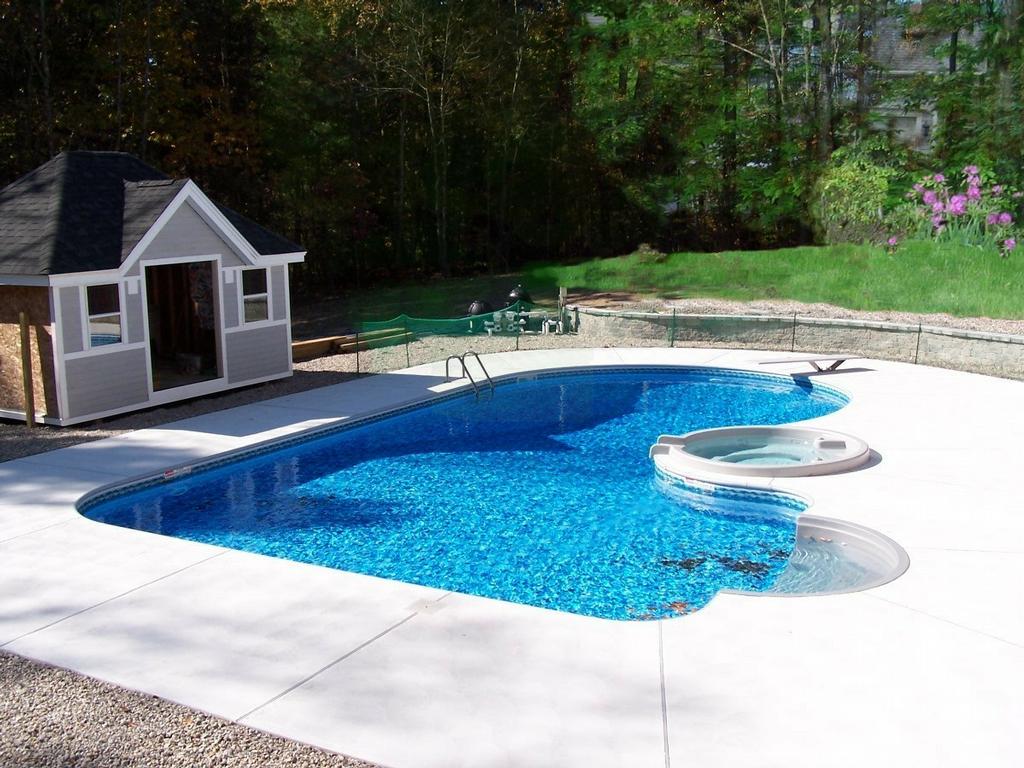
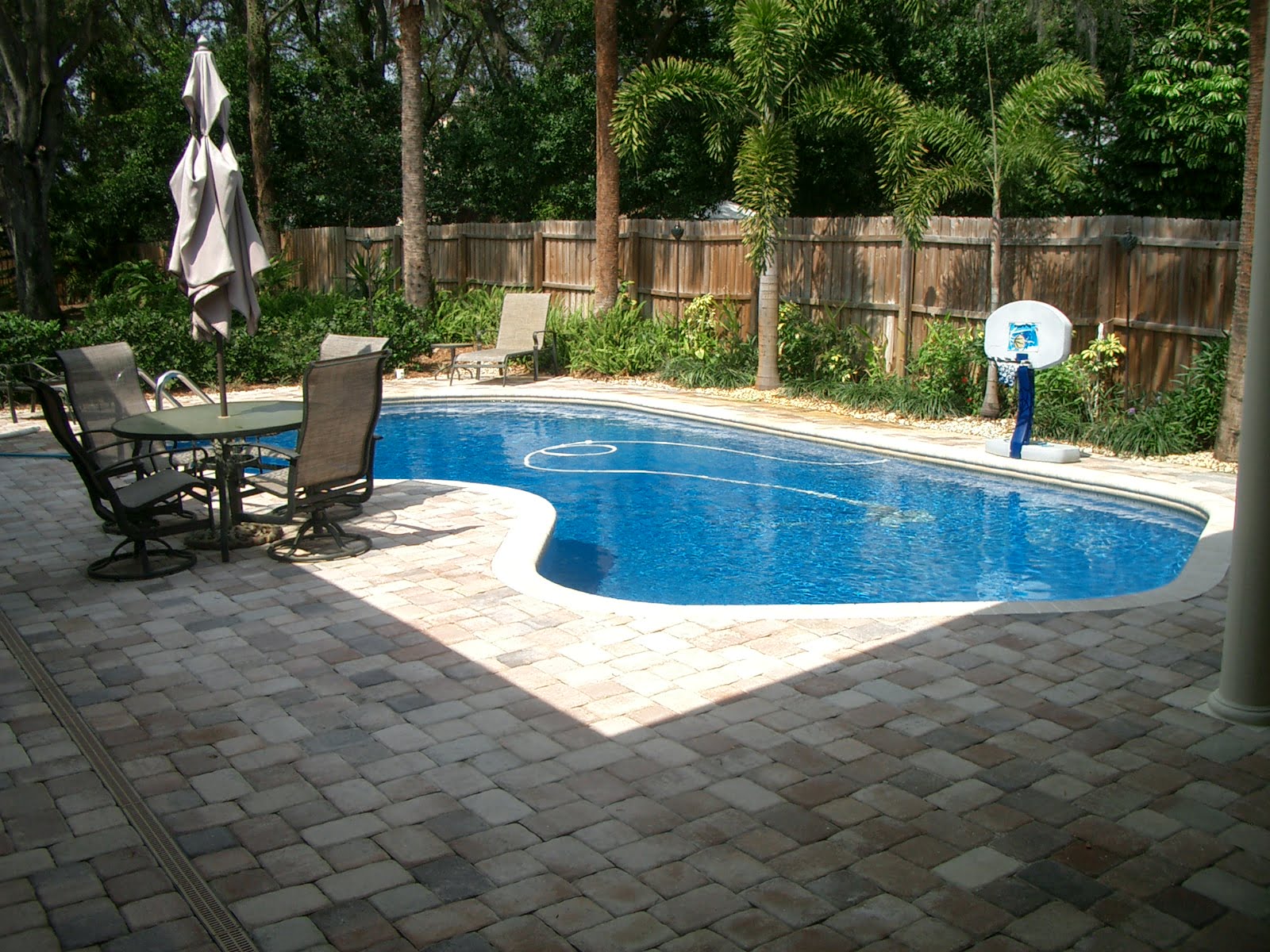
Related Articles
5 Best Above-Ground Pool Pads | Buyer’s Guide and Reviews
5 Best Epoxy Pool Paint | Buyer’s Guide and Reviews
10 Best Pool Cover Pumps of 2022 | Buyer’s Guide and Reviews
Learn How to Install a Spa Cover Lifter
Dolphin M400 with Caddy Review & Buyer’s Guide
Top Tier APEC vs. iSpring RCC7 | Water Filtration Systems Compared
